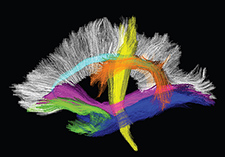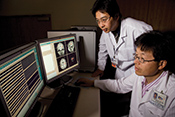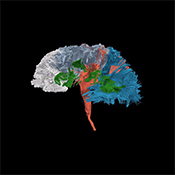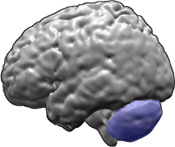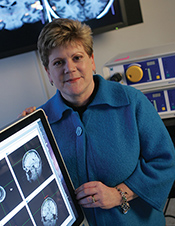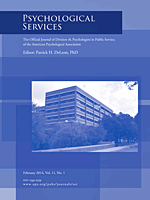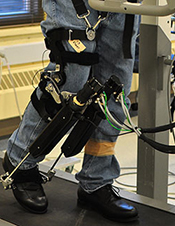VA researchers making major breakthroughs to improve lives of veterans
(11/05/2021)
WJLA-TV (ABC-7) in Washington, DC, highlighted the national VA research program in a “7Salutes” segment for Veterans Day. The segment touched on advances in prosthetics, spinal cord injury, and COVID-19 research. It features comments from Dr. Rachel Ramoni, chief research and development officer for VA.
7News Salutes: VA researchers making major breakthroughs to improve lives of veterans | WJLA
News source: News source: WJLA ABC7
|
Concussions don't necessarily affect ears — but they can affect the ability to hear
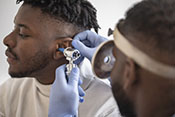 ©Getty Images/Vladimir Vladimirov
(11/03/2021)
People who sustain a concussion can develop an unusual hearing problem. Their ears work fine, but their brain struggles to process sounds. … Melissa Papesh is a research investigator at the Veterans Affairs National Center for Rehabilitative Auditory Research (National Center for Rehabilitative Auditory Research (NCRAR) Home (va.gov)). She says that during the wars in Iraq and Afghanistan, the VA began to see something odd in military personnel. …
News source: NPR
|
mRNA COVID-19 vaccines effective in cirrhosis patients, study finds
 ©©Stock/drazen_zigic
(07/14/2021)
U.S. veterans experiencing cirrhosis, or damage to the liver, and who also received an mRNA COVID-19 vaccine saw high levels of protection against virus-related hospitalization and death, a study found. Researchers affiliated with the Bruce W. Carter VA Medical Center in Miami published findings in JAMA Internal Medicine on Tuesday, drawing from a retrospective study of 20,037 U.S. veterans with cirrhosis who received at least one dose of vaccine at the Veterans Health Administration, compared with another 20,037 matched controls. The findings come as federal health authorities said the two groups of concern relating to potential use of booster shots include people 75 and older and those with a weakened immune system, or immunocompromised patients. The study authors at hand noted "patients with cirrhosis have immune dysregulation that is associated with vaccine hyporesponsiveness."
News source: Fox News
|
Possible game changer in the treatment of depression and anxiety
(06/22/2021)
It's a first-of-its-kind, first in-human research that involves the use of an MRI and special ultrasound. This research will be conducted at the Providence VA Medical Center, thanks to a $2.3 million award from the National Institute of Mental Health. "These are difficult problems and they ruin people's lives and we need better treatments to help them," said Dr. Noah Philip, director of Psychiatric Neuromodulation at the VA Healthcare system. "When people are ill with depression and anxiety, there's deep parts of the brain that are involved. We have no treatments right now that can actually go in to that part of the brain and turn it down non-invasively," said Philip.
News source: 10WJAR (video report)
|
Death Rates Are Rising Across Rural America
 ©istock/SeanXu
(06/08/2021)
In rural America, more people die from chronic health conditions and substance abuse than in suburbs and cities, and the gap is widening. Researchers report in a new study that the difference in rural and urban death rates tripled over the past 20 years mostly due to deaths among middle-aged white men and women. "We looked at all-cause death, and found that instead of the difference in this disparity getting better over time, as you might expect as our economy progresses and our health system improves, we've actually seen that differences really multiplied," said lead researcher Dr. Haider Warraich, a cardiologist at Brigham and Women's Hospital in Boston and the VA Boston Healthcare System. This gap is partly due to access to care, but other factors also contribute, he said.
News source: U.S. News & World Report
|
Lowcountry facility plays a vital role in creating recent FDA approved Alzheimer’s treatment
 ©iStock/ RealPeopleGroup
(06/07/2021)
On Monday, the U.S. Food and Drug Administration (FDA) approved a new drug, Aducanumab (Biogen/Eisai), to treat Alzheimer’s disease. Representatives from the Alzheimer’s Association expressed a lot of excitement for the new treatment. Those with the South Carolina chapter of the Alzheimer’s Association said this treatment is nearly 20 years in the making. Beth Sulkowski, the Vice President of Communications and Advocacy for Alzheimer’s Association of South Carolina said 20 years ago was the last time a new drug for treatment was approved. Until Monday, the FDA has only approved drugs that masked or lessened the symptoms of the disease. The research was done in part by Ralph H. Johnson VA Medical Center in an effort to assist even some of the 95,000 South Carolinians who live each day with this degenerative disease.
News source: WCBD2/NBC
|
VA turns to genetic makeup for clues on how to successfully fight COVID-19
(05/25/2021)
Scientists and doctors around the world are turning to genetic research to help unlock questions about COVID-19, which has killed more than 3 million people around the world. In May 2020, the Department of Veterans Affairs’ Million Veteran Program, a national research program developed to learn how genes, lifestyle and military exposures affect health and illness, started studying how a person’s genetic makeup could play a role in responding to a COVID-19 infection. MVP sent a COVID-19 questionnaire to more than 800,000 Veterans participating in the program to collect information about their experiences during the pandemic. VA researchers were interested in collecting and analyzing data that could help provide insights into the genetic makeup of the infection, factors that could help predict the severity of an infection and learning how genetic traits respond to COVID-19 treatments.
News source: WSAW7/CBS Video news report
|
Covid-19 forces physician to rethink treatments that are overdone or unnecessary
 ©iStock/Kiwis
(05/24/2021)
Covid-19 is opening the door for researchers to address a problem that has vexed the medical community for decades: the overtreatment and unnecessary treatment of patients. On one hand, the pandemic caused major health setbacks for non-coronavirus patients who were forced to, or chose to, avoid tests and treatments for various illnesses. On the other hand, in cases in which no harm was done by delays or cancellations, medical experts can now reevaluate whether those procedures are truly necessary. One recent study looked at Veterans Affairs patients who had elective surgeries canceled due to the pandemic. The study found they were no more likely to visit hospital emergency rooms than patients who had undergone those surgeries in 2018.
News source: The Washington Post
|
What Surgery Works Best for Advanced Ankle Arthritis?
 ©iStock/Dmytro Bosnak
(05/21/2021)
For patients with severe ankle arthritis, total ankle replacement provides better function over the long haul than the traditional surgical treatment, a new study finds. Researchers assessed outcomes in 517 patients with end-stage ankle arthritis—meaning they have a complete loss of cartilage resulting in "bone-on-bone" contact in the ankle joint. The result is pain and stiffness. The patients either had total ankle arthroplasty (TAA) or ankle arthrodesis (AA). A team headed by foot and ankle specialist Dr. Bruce Sangeorzan of the University of Washington and VA Puget Sound Health Care System in Seattle conducted the study. AA, the standard treatment for end-stage ankle arthritis, uses plates and screws to fuse the ankle bones into a single piece. But TAA has become a popular alternative. In TAA, a prosthesis is used to replace the deteriorated ankle joint, similar to the use of artificial joints in total hip or knee replacement.
News source: U.S. News & World Report
|
Washington University researchers warn a growing number of doctors are prescribing opioids for COVID long-haulers
 ©iStock/JannHuizenga
(05/20/2021)
St. Louis medical researchers are worried about a possible spike in the opioid crisis because a growing number of doctors are prescribing painkillers to COVID long-haulers. A joint study by the Washington University School of Medicine and the Veterans Health Administration is encouraging doctors to seek alternative treatments for COVID long-hauler instead of opioids. “This may cascade down to be a bigger problem down the road,” said lead researcher Dr. Ziyad Al-Aly, Washington University and the Veteran’s Health Administration. Dr. Al-Aly said the study showed COVID long-haulers were taking more opioids to manage pain than other VA patients. A COVID long-hauler is someone whose symptoms last weeks or even months.
News source: FOX2NOW
|
Why men and women feel pain differently
 ©iStock/Murat Deniz
(05/15/2021)
With chronic pain, equality doesn’t exist between men and women. Women have it worse: They are much more likely to experience chronic pain than men, and are much more likely to have almost every condition associated with chronic discomfort such as migraines, fibromyalgia, irritable bowel syndrome and autoimmune conditions like rheumatoid arthritis, among others. Many of these are “contested conditions” since they might not show up on a CT scan or a blood test, causing some doctors to wrongly dispute their existence. While women have benefited more than men from the seismic increase in longevity over the past two centuries, and on average live five years longer than men, they also often live longer with disability. In addition to being more likely to have chronic pain, most women experience significant discomfort on a monthly basis for much of their adult lives with menstruation and most feel extreme pain during childbirth.
Physician-researcher Dr. Haider J. Warraich is associate director of the Heart Failure Program at the VA Boston Healthcare System.
News source: The Washington Post
|
VA studies show how effective COVID-19 vaccines are in preventing infection
(05/12/2021)
The VA has been looking at this since the very first vaccine went in to the arms of its nursing home veterans. "The VA runs 134 nursing homes," said Dr. James Rudolph, who wears two hats. He directs a health services research center focused on long term. This allowed him and his colleagues to follow the data from the very beginning. "In the VA, we benefit from having a unified system where we're all on one medical record, as well as we have regional organization," said Rudolph.
News source: 10WJAR-NBC (News video report)
|
'Light Therapy' Could Help Brain-Injured Veterans Struggling With PTSD
 ©iStock/Rocky89
(04/28/2021)
WEDNESDAY, April 28, 2021 (HealthDay News) -- A popular treatment for the seasonal depression that strikes during dark winter months may also benefit veterans with traumatic brain injuries and post-traumatic stress disorder, a small pilot study suggests. Results from 16 older veterans found that bright light therapy alongside traditional treatments for these problems improved physical and mental symptoms. The therapy, in which participants sat in front of a device called a lightbox that mimics outdoor light, may help by altering brain chemicals involved in sleep and mood, according to researchers at Oregon Health & Science University (OHSU) and the VA Portland Health Care System.
News source: U.S. News & World Report
|
The VA Is Testing an Implant That Could Allow Paralyzed Veterans to Walk Again
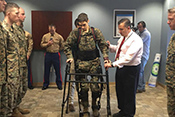 Photo by Joshua Burch
(04/25/2021)
Five years ago, Marine Lance Cpl. Joshua Burch became the first paralyzed service member to walk to his own promotion ceremony, wearing an exoskeleton that helped him walk and stand to receive his corporal chevrons. Now medically retired, Burch, 26, hopes again to be a trailblazer -- the first Department of Veterans Affairs patient to regain function in his lower body -- to include taking steps -- courtesy of an electrical implant in his spine that is designed to stimulate his body's sensorimotor networks. "Even thinking about walking is crazy. I look at this as a stepping-stone to a future where others like me can walk. I look at my participation in this research as a way of helping people out," Burch said during an interview in March with Military.com. Researchers at Hunter Holmes McGuire VA Medical Center in Richmond, Virginia, have launched a study to determine whether epidural stimulators can help paralyzed veterans recover motor activity and/or control over their "inner systems" -- their cardiovascular and bladder functions, for example.
News source: Military.com
|
Study of 400,000 Female Vets Links PTSD to Heart Disease
 ©iStock/Stevica Mrdja
(04/19/2021)
According to the Department of Veterans Affairs, between 11% and 20% of modern-day veterans suffer from PTSD. A recent study in the Journal of the American Medical Association reports that female veterans with Post Traumatic Stress Disorder (PTSD) are more than twice as likely as male veterans to suffer from ischemic heart disease than those without PTSD. The study examined nearly 400,000 female veterans, of which nearly one-third suffered from PTSD. The results of that study reflected that female veterans suffering from PTSD were 44% more likely to have the debilitating heart disease than their fellow veterans who did not have PTSD.
News source: Military.com
|
Study: Many veterans say their outlook has improved during COVID-19 pandemic
 Photo by: William Redding, U.S. Marine Corps
(04/08/2021)
A surprising number of U.S. military veterans say they feel more positive about life, relationships and themselves since the coronavirus pandemic began, bucking predictions of a dire mental health crisis caused by the outbreak, a study published Thursday said. “People talked, when the pandemic was unfolding, that we were going to see an incredible wave of mental illness, but the research hasn’t captured that,” one of the study’s authors, Dr. Robert Pietrzak, told Stars and Stripes. He heads the Translational Psychiatric Epidemiology Laboratory of the U.S. Department of Veterans Affairs’ National Center for PTSD. More than 3,000 veterans were surveyed between November 2019 and March 2020 — before COVID-19 had been declared a pandemic by the World Health Organization — and again in November and December 2020 when the pandemic was in full swing. Of those, 43% said they had experienced positive psychological changes despite lockdowns, isolation, economic hardship and illness
News source: Stars and Stripes
|
1 in 3 Older Thyroid Patients Takes a Med That Can Interfere With Tests
 ©iStock/DragonImages
(03/18/2021)
THURSDAY, March 18, 2021 (HealthDay News) -- Nearly one-third of seniors who take thyroid hormone also take drugs known to interfere with tests of thyroid function, a new study finds. It's common for older adults to take a thyroid hormone (levothyroxine) to treat low levels of natural thyroid hormone. But tests used to determine the dose and effectiveness of treatment can be affected by other medications, including prednisone, prednisolone, carbamazepine, phenytoin, phenobarbital, amiodarone, lithium, interferon-alpha and tamoxifen. "Our study highlights the complexity and challenges of managing thyroid hormone replacement in older patients, many of whom are at risk for adverse effects in the context of having multiple chronic conditions and being on multiple other medications," said senior researcher Dr. Maria Papaleontiou, an assistant professor at the Institute of Healthcare Policy and Innovation at the University of Michigan.
News source: U.S. News & World Report
|
VA funds UW-Madison School of Veterinary Medicine cancer study in dogs
(03/17/2021)
The Dept. of Veterans Affairs is funding the research, because many veterans overseas develop melanoma from sun exposure, and researchers have found similarities between cancer in dogs and people. “In this study, we’re trying to turn the immune system back on again specifically, against a patients cancer,” Prof. David Vail, Barbara A. Suran Chair in Comparative Oncology for the University of Wisconsin-Madison School of Veterinary Medicine said. Instead of surgery or chemotherapy, the treatment involves a combination of radiation and antibody injections to attack tumors.
News source: WMTV/nbc15 (Video report)
|
Sound sleep plays a critical role in healing traumatic brain injury, a new study of military veterans suggests.
 ©iStock/iaremenko
(03/12/2021)
The study, published in the Journal of Neurotrauma, used a new technique involving magnetic resonance imaging developed at Oregon Health & Science University. Researchers used MRI to evaluate the enlargement of perivascular spaces that surround blood vessels in the brain. Enlargement of these spaces occurs in aging and is associated with the development of dementia. Among veterans in the study, those who slept poorly had more evidence of these enlarged spaces and more post-concussive symptoms. "This has huge implications for the armed forces as well as civilians," said lead author Juan Piantino, M.D., MCR, assistant professor of pediatrics (neurology) in the OHSU School of Medicine and Doernbecher Children's Hospital. "This study suggests sleep may play an important role in clearing waste from the brain after traumatic brain injury, and if you don't sleep very well, you might not clean your brain as efficiently."
News source: NeuroscienceNews.com
|
Could group therapy get a boost from psychedelics?
 © iStock/Pheelings Media
(03/10/2021)
If all goes well, late this year or early next year, six veterans who suffer from post-traumatic stress disorder will gather one weekend at a Department of Veterans Affairs hospital in Portland, Ore., to take MDMA, a psychedelic better known as ecstasy. With the lights dimmed, they'll lie on mats on the floor, don eyeshades and listen to instrumental music through headphones. The trial is focused on group dosing of psychedelics, and will test whether the experience of taking them together is feasible and safe, says Dr. Christopher Stauffer, who is running the trial with the nonprofit Multidisciplinary Association for Psychedelic Studies. The study, which still needs approval from the Food and Drug Administration, will take place over the course of 11 weeks for three cohorts of six veterans, he says. During the sessions, Dr. Stauffer and three other therapists will supervise the participants, who will all be tested for the severity of their PTSD at the start of the trial and a few months after, he says. The veterans will receive both individual talk therapy and dosing sessions, as well as traditional group therapy, he says.
News source: Wall Street Journal
|
Wellness Wednesday: Program helps veterans who suffer from chronic headaches
 ©iStock/g-stockstudio
(03/10/2021)
(WFSB) -- Millions of Americans suffer from headaches, and the painful problem also plagues many veterans. It's estimated more than 30 percent of those who served in Iraq or Afghanistan now deal with migraines. However, there's important work being done in Connecticut to combat the condition. Dr. Jason Sico, the national director for the Veterans Health Administration Headache Center for Excellence, meets with his patients virtually nowadays. "I've been doing telehealth for 10 years and it's been ramped up in earnest during the pandemic," he said. The program he runs aims to better understand how veterans are suffering.
News source: WFSB Eyewitness News
|
Smoking, drinking, drugs may bring on early heart disease, report suggests
 © iStock/ManonAllard
(02/20/2021)
Smoking, drinking and drug use have long been linked to heart disease in older adults. A new study suggests that recreational substance use can bring on heart attacks, strokes and other cardiac events in earlier life, too — and those who have used four or more substances are nine times as likely to experience early heart disease than those who don't. The observational study, published in the journal Heart, looked at nationwide Veterans Affairs health-care data covering 1.2 million patients who receive primary care from the federal department. Researchers focused on heart attack, stroke or angina in men 55 and under and women 65 and under. About 135,000 of the veterans experienced an early cardiac event, and 7,700 of those had an event before they turned 40. The researchers found an association between recreational use of legal and illicit substances and premature heart disease. Tobacco users were almost twice as likely to develop early heart disease than nonsmokers, and amphetamine users were almost three times as likely. Alcohol, cocaine and cannabis use were associated with early heart disease, as well.
News source: The Washington Post
|
Abnormal Stool Test Result? Don't Delay Your Colonoscopy
 ©iStock/KittipongJirasukhanont
(02/17/2021)
In a new study, investigators analyzed data from more than 200,000 U.S. veterans, aged 50 to 75, who had an abnormal fecal immunochemical test (FIT) or fecal occult blood test (FOBT). Both are common stool blood screening tests. Abnormal results (blood in the stool) on the tests should be followed by a colonoscopy to check for precancerous and cancerous colon growths called polyps. Patients who had a colonoscopy more than 13 months after an abnormal stool blood test were up to 1.3 times more likely to develop colon cancer than those who had colonoscopy up to three months after the stool test, the study authors found. The risk of advanced colon cancer at diagnosis was up to 1.7 times higher among patients who had a colonoscopy more than 16 months after an abnormal stool blood test, according to the Veterans Affairs (VA) researchers.
News source: U.S. News & World Report
|
COVID-19 posing increased risk to Gulf War veterans suffering mysterious illness
(02/17/2021)
Coronavirus is posing a unique danger to a group of veterans suffering invisible wounds of war, some of whom may not even know why they're sick. Scientists estimate as many as one out of every three men and women who returned from Operations Desert Shield and Desert Storm suffer from what's known as Gulf War Illness, a sometimes loosely tied collection of symptoms that doctors believe stem from the numerous toxins veterans ingested during combat in the Persian Gulf. Symptoms can include fatigue, headaches, joint pain, indigestion, insomnia, dizziness, respiratory disorders, and memory problems, according to the Department of Veterans Affairs. "They truly have a tremendous amount of suffering going on," said Dr. Nancy Klimas, with Nova Southeastern University's Institute for Neuro-Immune Medicine and the Miami VA Hospital. "These are veterans. They have a drill sergeant in the back of their heads saying put through your pain. Push through your pain." Klimas has been studying Gulf War Illness since the final days of Operation Desert Storm, when she began to observe symptoms in veterans returning from the conflict.
News source: WPEC (CBS-12) West Palm Beach: video
|
Delaying colonoscopy after abnormal stool test increases risk of colorectal cancer, VA study finds
 Photo by Christopher Menzie, VA San Diego
(02/02/2021)
New research emphasizes the importance of scheduling a colonoscopy as soon as possible after an abnormal stool blood test. Patients who received colonoscopies more than 13 months after abnormal tests were up to 1.3 times more likely to have colorectal cancer than those who had the procedure done within three months of their stool tests, according to a Veterans Affairs study. The likelihood of an advanced stage of cancer diagnosis was up to 1.7 times higher when the colonoscopy was delayed longer than 16 months. Patients who delayed the procedure for more than 19 months had up to 1.5 times higher risk of colorectal cancer-related death.
News source: PhillyVoice
|
UCSD, VA Researchers Find Possible Genetic Links For Susceptibility to PTSD
 ©iStock/KatarzynaBialasiewicz
(02/01/2021)
By analyzing the genomes of more than 250,000 military veterans, a team of scientists led by researchers at UC San Diego and Veterans Affairs San Diego Healthcare System have identified 18 specific, fixed positions on chromosomes known as loci, which appear associated with post- traumatic stress disorder, it was announced Thursday. The findings validate the underlying biology of PTSD, its relationship to comorbid anxiety and depressive disorders, and provide potential new targets for treatment, write the authors in Thursday's online issue of Nature Genetics. "We're very intrigued by the findings of this study, for example, as they pertain to the genetic relationships between different kinds of PTSD symptoms," said co-principal investigator Dr. Murray Stein, professor of psychiatry and family medicine and public health at UCSD School of Medicine and a psychiatrist at VASDHS. "It also shows the huge value of the Million Veteran Program in facilitating research important to the care of our military veterans."
News source: Times of San Diego
|
Agent Orange Exposure Doubles Risk of Developing Dementia, Study Finds
 ©iStock/Izusek
(01/26/2021)
A new study of more than 300,000 Vietnam-era U.S. veterans has found that those who were exposed to Agent Orange are nearly twice as likely to develop dementia as those who were not. The new finding, published Monday in JAMA Neurology, is among the most substantial to date linking cognitive decline with chemicals used for defoliation during the Vietnam War. For the study, researchers at the San Francisco Veterans Affairs Health Care System examined the medical records of thousands of veterans and found a two-fold risk of dementia for those whose medical records indicated evidence of exposure.
News source: Military.com
|
Scientists developing color-changing test strip to stick on face masks and detect COVID-19
 © iStock/Artur Kamalov
(01/25/2021)
SAN DIEGO - Researchers at the University of California San Diego are creating a test that could quickly detect COVID-19 using droplets from a person's face mask. The strip attaches to a face mask as a sticker and then collects droplets from the person's breath, changing color depending on results. Researchers said it's very similar to a home pregnancy test. "Think of this as a surveillance approach, similar to having a smoke detector in your house," Professor and Lead Principal Investigator Jesse Jokerst said. "This would just sit in the background every day and if it gets triggered, then you know there's a problem and that's when you would look into it with more sophisticated testing,"
News source: FOX 35 Orlando
|
When Mice Eat Can Reduce Risk Of Breast Cancer, Researchers Find
 © iStocl/Gorodenkoff Productions OU
(01/25/2021)
In a study published Monday, UC San Diego School of Medicine researchers found when — not what — mice ate in a lab reduced the risk of breast cancer and improved insulin levels. Restricting eating to an eight-hour window, when activity is highest, decreased the risk of development, growth and metastasis of breast cancer in mouse models, the researchers at UCSD School of Medicine, Moores Cancer Center and Veterans Affairs San Diego Healthcare System reported. The findings, published in Monday's edition of Nature Communications, show time-restricted feeding — a form of intermittent fasting aligned with circadian rhythms — improved metabolic health and tumor circadian rhythms in mice with obesity-driven postmenopausal breast cancer.
News source: KPBS News
|
AHA News: The Head Is Connected to the Heart – and Can Influence Health
 ©iStock/Pattanaphong Khuankaew
(01/25/2021)
MONDAY, Jan. 25, 2021 (American Heart Association News) --A growing body of research shows good mental health can improve heart health and reduce cardiovascular risks, while poor mental health can increase the risk of heart disease, according to a new scientific report. Because of the clear link emerging between psychological health and heart health, doctors should assess the mental well-being of heart patients as part of their routine care, concluded a panel of experts in a new scientific statement from the American Heart Association. The statement, published Monday in the journal Circulation, summarizes evidence of biological, behavioral and psychological pathways that link mental health to heart disease.
News source: U.S. News & World Report
|
When ICUs near capacity, COVID patients’ risk for death nearly doubles
 ©iStock 1255592762
(01/20/2021)
WEDNESDAY, Jan. 20, 2021 (HealthDay News) -- When intensive care units are swamped with COVID-19 patients, death rates may climb, a new study finds. Looking at data from 88 U.S. Department of Veterans Affairs (VA) hospitals, researchers found a pattern: COVID-19 patients were nearly twice as likely to die during periods when ICUs were dealing with a surge of patients with the illness. The results, experts said, do not necessarily mean that a busy ICU puts COVID-19 patients at greater risk.
News source: U.S. News & World Report
|
COVID-19 Is Far More Lethal, Damaging Than Flu, Data Shows
 © iStock/Rost-9D
(12/18/2020)
FRIDAY, Dec. 18, 2020 (HealthDay News) -- COVID-19 is far more harmful and deadly than the seasonal flu, new studies confirm. Researchers analyzed U.S. Department of Veterans Affairs data on more than 3,600 patients hospitalized with COVID-19 between Feb. 1 and June 17 of this year, and more than 12,600 hospitalized with the flu between Jan. 1, 2017 and Dec. 31, 2019. The average age of patients in both groups was 69. The death rate among COVID-19 patients was 18.5%, while it was 5.3% for those with the flu. Those with COVID were nearly five times more likely to die than flu patients, according to the study published online Dec. 15 in the BMJ.
News source: U.S. News and World Report
|
Traumatic brain injury, PTSD boost heart attack risk in veterans
 Photo: ©iStock/Pattanaphong Khuankaew
(11/12/2020)
The risk of heart attack is significantly higher in people with PTSD or traumatic brain injury, a new study of U.S. veterans shows. Past studies have found post-traumatic stress disorder is a risk factor for heart disease and stroke. Veterans have disproportionately high rates for PTSD as well as traumatic brain injury, the so-called signature injury of the U.S. wars in Iraq and Afghanistan. Estimates show up to 23% of veterans in those wars suffered a traumatic brain injury, or TBI, many of which were caused by land mines. In the new study, researchers from Kansas City VA Medical Center looked at data from 1998 to 2014 for more than 1 million veterans, many of whom had served in the Gulf War or the Iraq and Afghanistan wars.
News source: U.S. News & Report
|
‘I feel great’: Veteran volunteers in Pfizer’s COVID-19 vaccine trial
 Photo: ©iStockKameleon007
(10/29/2020)
"I feel great." It is the answer to the question that Desmond Kennedy gets anywhere from eight to eight hundred times a day. He's one of large group of veterans at the Louis Stokes Cleveland VA Medical Center who has volunteered to test a potential vaccine for Covid-19. " I would have never have known that I got a shot everyone always asks me how do you feel how do you feel and I said it's a vaccine I shouldn't feel any side effects because if I do that means something is wrong, I feel great," Desmond said.
News source: WoodTV8
|
Veterans have higher rates of insomnia than non-Veterans
 Photo: ©iStock/Fergusowen
(10/29/2020)
Veterans experience insomnia at "alarmingly high" rates, according to a recent study from the Department of Veterans Affairs in San Diego. The rate, the study found, was especially high among veterans suffering from Post-Traumatic Stress Disorder (PTSD), Traumatic Brain Injury (TBI), and chronic pain.
News source: Military.com
|
Face masks don't restrict oxygen or contribute to carbon dioxide buildup: study
(10/07/2020)
Breathe easy. A new study suggests that surgical face masks don't cause a buildup of carbon dioxide or restrict oxygen, despite opposing claims. The study, on the "Effect of Face Masks on Gas Exchange in Healthy Persons and Patients with COPD," which was published in the Annals of the American Thoracic Society on Friday, was conducted after a group of Florida residents challenged Florida's mask-wearing mandate in June, arguing that wearing the protective face coverings could result in the buildup of too much carbon dioxide.
News source: Fox 40
|
Blacks and Hispanics are twice as likely to test positive for Covid-19, says a new study
 Photo:© iStock/Artur Kamalov
(09/23/2020)
Black and Hispanic people are twice as likely to test positive for Covid-19 as White people even after adjusting for outside factors, says a new study. The disparity cannot be entirely explained by underlying health conditions, place of residence or place of care, according to the study published Tuesday in the journal PLOS Medicine.
News source: CNN
|
VA joins Army in major DOD research effort to prevent suicides
(09/11/2020)
WASHINGTON -- An ongoing Defense Department-directed epidemiological study recently got a helping hand that could help generate actionable recommendations to reduce military suicides. A new memorandum of agreement on the Study to Assess Risk & Resilience in Servicemembers, or STARRS, was inked July 27 to help produce actionable information for senior military leaders, said Col. Sheila Seitz, the STARRS deputy director and Army Reserve advisor.
News source: Army News Service
|
Health Beat: Artificial hand that feels
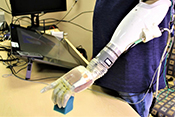 Jennifer Kerbo
(09/09/2020)
DENVER - Keith Vonderhuevel lost his right hand in a work accident and has struggled with a prosthetic. "My granddaughters, they grab a hold of my hand," Vonderhuevel shared. "If I'm not watching close enough, I squeeze a little tight, and they're like, 'Ow, let go!' Because without sensation, you can't tell." But now, Vonderhuevel is on the cutting edge of technology. A team from CU Boulder, Case Western Reserve, and the Cleveland VA Medical Center is working to give amputees prosthetics that can feel.
News source: 69 News WFMZ-TV
|
Fighting COVID-19 with supercomputers
 Photo: ©iStock/da-kuk
(09/03/2020)
A month ago three departments—Energy, Health and Human Services, and Veterans Affairs—established what they call the COVID-19 Insights Partnership. It brings together a lot of health data from HHS and VA, and feeds it into Energy's super computers. With more on what they're up to, Federal Drive with Tom Temin spoke to Bronson Messer, director of science at the Oak Ridge National Laboratory.
News source: Federal News Network
|
VA medical centers rank high in surgical quality
 Photo: ©iStock/HRAUN
(07/24/2020)
A recent study found that VA medical centers outperform or match neighboring non-VA hospitals in surgical quality and patient satisfaction. Researchers at the White River Junction VA Medical Center and the Dartmouth-Hitchcock Medical Center compared 34 VA facilities to 319 non-VA hospitals nearby. They found that VA performed better or as good as the non-VA hospitals in overall patient safety indicators. VA hospitals performed much better in surgery-specific patient safety indicators. VA hospitals were also about equal in patient satisfaction. "For Veterans, who often have choices in where they receive care, it is in their best interest to make fully informed health care decisions, said VA Secretary Robert Wilkie. "This study provides valuable information when faced with such an important choice." The study was published in the Journal of Surgical Research.
News source: Connecting Vets, July 21, 2020
|
“Disabled do-it-yourselfers lead way to technology gains”

(07/17/2020)
An article from the New York Times discusses how technology to assist people with disabilities is developed. It explains that advances often come in the form of small changes to existing products rather than new inventions. For example, smartphones and GPS have made life easier for people with a number of disabilities. While much disability-related technology grows through incremental advances, transformative inventions are also important. The article highlights the work of Dr. Rory Cooper, director of the VA-University of Pittsburgh Human Engineering Research Laboratories. Among Cooper's projects are adapting components designed for vehicles and drones to create much lighter wheelchairs. He has also developed a waterproof chair that runs on compressed air. Originally designed for a wheelchair-accessible water park, the innovation will make it easier for wheelchair users to go out in the rain.
News source: New York Times, July 14, 2020
|
“75 or older? Statins can still benefit your heart”
 Photo: ©iStock/rogerashford
(07/09/2020)
U.S. News & World Report covered a VA study that found taking statins can benefit older adults. The study by researchers from the VA Boston Healthcare System and Harvard Medical School and colleagues was published in JAMA. Statins are medications for lowering cholesterol. Until recently, medical guidelines recommended halting statin therapy at age 75. The study of more than 300,000 Veterans using VA health care found that people 75 and older without heart disease who were prescribed a statin had a 25% lower risk of all-cause mortality and a 20% lower risk of heart-related death, compared to those not on the drug. “Based on these data, age is not a reason to not prescribe statins,” said Dr. Ariela Orkaby, lead researcher on the study.
News source: U.S. News & World Report, July 7, 2020
|
Case study: Rare cognitive condition makes man unable to see numbers
 Photo: ©iStock/pixel_dreams
(06/26/2020)
Live Science reports on a case report of an unusual cognitive condition by VA Boston Healthcare system researchers. The study subject has a rare degenerative brain disorder called corticobasal syndrome. In addition to other movement and language problems, the condition makes him unable to perceive numbers, instead seeing a scramble of lines. The problem is only with number; he is able to see letters without problem. He can also see the numbers 0 and 1, but not 2 through 9. That means that the brain first determines that what he is looking at is a number before something goes wrong and the image is scrambled. Through several cognitive experiments, the researchers determined that the subject’s brain was still processing the numbers he looked at, but not letting him be aware of the knowledge that it was processing. The case study offers new insights into how memory and cognitive processing works, according to the researchers. Scientists are not sure exactly how human brains convert a visual image into awareness of a concept. The case study suggests that the man is experiencing a problem with semantic memory, memories drawn from common knowledge rather than personal experience.
News source: Live Science, June 22, 2020
|
Popular blood pressure medicines do not put patients at greater COVID-19 risk, new study finds

(06/19/2020)
Two common blood pressure medicines do not put people at higher risk of COVID-19, found a new study. The blood-pressure lowering drugs, ACE inhibitors and ARBs, were not linked to higher risk of diagnosis or hospitalization from COVID-19. The study came from a collaboration between VA and other organizations called the Observational Health Data Sciences and Informatics program (OHDSI). The drugs came under scrutiny in April 2020 after the Centers for Disease Control and Prevention reported that 72% of hospitalized COVID-19 patients 65 or older had high blood pressure. But the OHDSI study shows that this correlation is not caused by the drugs. Marc Suchard of the University of California, Los Angeles, co-lead on the study, reassured patients that "taking an ACE or an ARB is just as safe as other first-line hypertension agents in terms of your risk of contracting COVID-19."
News source: Yahoo! News, June 12, 2020
|
Massive COVID-19 testing effort announced
 Photo: ©iStock/scyther5
(06/02/2020)
The U.S. government is beginning a massive effort to fast-track research into a vaccine for COVID-19, as reported by Reuters. In a private-public partnership, government agencies will team with leading vaccine makers to begin trials of the most promising vaccines. The plan is for trials to begin in July. The trials will take advantage of VA’s large health care system and research trial network to recruit volunteers. The plan is to enroll between 100,000 to 150,000 people from multiple sources in studies on half-a-dozen potential vaccines. The testing will begin with small safety trials of healthy volunteers. If a potential vaccine proves safe, a larger study to find the right dose and learn how effective it is will follow. The final stage will be large-scale testing with thousands of volunteers. Developing a vaccine usually takes years, but “Operation Warp Speed,” announced by the White House on May 15, 2020, hopes to deliver a safe and effective vaccine for COVID-19 by the end of 2020.
News source: Reuters, May 22, 2020
|
For the first time, scientists are able to see how the brain records memories as we sleep
 Photo: iStock/image_jungle
(05/14/2020)
VA researchers and colleagues witnessed how short-term memories get stored in the brain as long-term memories for the first time. The study, published in the journal Cell Reports, was conducted by BrainGate, a research consortium that includes the Providence VA Medical Center and several university partners. The exact way that the brain stores memories is not well-understood. To explore this phenomenon, researchers planted tiny electrodes inside two volunteer’s brains. The volunteers played a memory game while a brain-computer interface recorded their brains’ electrical signals. They then went to sleep. The researchers saw the subjects’ brain replaying the same electrical signal patterns as had been recorded during the game. The finding provides direct evidence that the brain converts short-term memories to long-term memories by replaying them while a person sleeps, according to the researchers. Understanding how memory gets stored in the brain could help unlock the secrets of cognitive function, they say.
News source: CBS Pittsburgh, May 9, 2020
|
VA medical centers participating in large COVID-19 treatment study on convalescent plasma
 Photo: ©iStock/busracavus
(05/04/2020)
VA medical centers are part of a Mayo Clinic study on a possible new COVID-19 treatment. The study is collecting blood plasma samples from patients who have recovered from COVID-19. Researchers will then test to see whether antibodies in the blood of recovered patients can help current patients when infused into their blood. The St. Louis VA Medical Center was one of the first facilities to participate in the study, as reported by FOX 2 Now of St. Louis. More than 60 VA facilities have now registered to participate in the nationwide program.
News source: FOX 2 Now, April 21, 2020
|
VA researchers to study COVID-19 in aging Veterans with dementia
 Photo: ©iStock/Wavebreakmedia
(04/23/2020)
As reported in Connecting Vets, VA researchers are studying COVID-19 in aging Veterans with dementia. Researchers at the Providence VA Medical Center are looking at virus risk factors, intensive care outcomes, and how the virus spreads in VA community living centers. The VA Center for Innovation in Long-term Services and Support was awarded a grant from the National Institute on Aging for the study, which began in early April. "Veterans in our CLCs are among our most vulnerable patients," said VA Secretary Robert Wilkie. "They're counting on us to understand how this virus spreads and how it affects certain populations in these centers, and this timely grant will help us get there." Knowledge gained from the study will be used "to better protect this group of patients."
News source: Connecting Vets, April 21, 2020
|
How the coronavirus is disproportionately impacting black Americans
 Photo: iStock/adamkaz
(04/16/2020)
Dr. Utibe R. Essien of the VA Center for Health Equity Research and Promotion (CHERP) was a guest on the NPR podcast “On Point” on April 9, 2020. The subject was why African Americans are dying from COVID-19 at higher rates than other racial/ethnic groups. Essien and the other guests explained that institutional racism and poverty are largely responsible for the disparity. African American communities have higher rates of conditions such as asthma, heart disease, hypertension, and diabetes. Preexisting conditions such as these make people more susceptible to COVID-19. Research has tied these higher rates to living in more polluted areas and having less access to quality food because of economic factors. Economic pressure also leads to more stress, which taxes the immune system. African Americans are more likely to live in close proximity to others, to need to take public transportation, and to work in the service sector, all factors that increase the risk of exposure to coronavirus. Essien also explained that African Americans often have less access to health care due to financial and societal factors. A history of distrust of the health care system exists in the African American community, and studies have shown that medical professionals are less likely to believe minority patients about their symptoms. People in lower-income areas also have less access to telemedicine because of less broadband internet access. Furthermore, early reports have shown that more coronavirus testing is being conducted in wealthier neighborhoods. All of these factors combine to increase the risk and impact of coronavirus on the African American community, said the podcast guests.
News source: NPR On Point, April 9, 2020
|
African American scientist breaks ground in cancer research
 Dr. Hadiyah-Nicole Green. Photo: NNPA Newswire
(04/14/2020)
As reported by The Atlanta Voice, a researcher at Morehouse School of Medicine has used nanoparticles to cure cancer in mice, a first in cancer studies. Dr. Hadiya-Nicole Green has spent more than seven years developing the technology. Her research is funded by a $1.1 million grant from VA. The treatment involves injecting a drug containing nanoparticles. The nanoparticles are then activated using a laser. Once activated, the nanoparticles target cancer cells while not affecting the healthy cells around them. Green explains that the nanoparticles are non-toxic and the laser is harmless, meaning they don’t cause any effects until combined. “Because of their need to work together and their inability to work apart, I can ensure that the treatment is only happening to the cancer cells we target and identify,” she told AL.com in Alabama. Green’s technology is not tied to a specific cancer type, meaning it could be used on different varieties of cancer.
News source: Atlanta Voice, April 3, 2020
|
Can you develop immunity to coronavirus? OMRF working to find answers
 Photo: ©iStock/Hotaik Sung
(04/03/2020)
An article in the Enid News and Eagle out of Oklahoma City discusses research being done on coronavirus at the Oklahoma Medical Research Foundation. The story gives details on how the body creates antibodies in response to viruses. A previous study conducted elsewhere in monkeys suggests that antibodies produced during coronavirus infection could give a person at least temporary resistance to being infected again. OMRF is researching what antibodies are produced in response to coronavirus and how much protection those antibodies provide. Dr. Hal Scofield, an OMRF researcher and associate chief of staff for research at the Oklahoma City VA, explains that many viruses evolve over time, allowing them to get past the body's immune system. But antibody protection often lasts for several years, he says, and even if a person does become reinfected, the infection will be milder than the first time. This immunity could mean that doctors and nurses who recover from COVID-19 could treat patients without risk of reinfection.
News source: Enid News and Eagle, March 30, 2020
|
Why Isn't Infertility in Military Women a Bigger Conversation?
 Photo by Sgt. Richard Blumenstein/USMC
(03/02/2020)
Military.com reprinted an investigative piece by journalist Kelly Kennedy on the issue of infertility among women service members and Veterans. The story cites a number of VA research studies on the topic. One 2014 study, for example, conducted by VA’s Office of Women’s Health Services among more than 20,000 Veterans of the wars in Iraq and Afghanistan, found that about 14% of 16,056 men surveyed and 16% of 4,314 women surveyed had dealt with infertility.
News source: Military.com., Feb. 26, 2020
|
Deaths, Amputations Due to Blocked Leg Arteries Down Among U.S. Veterans
 Photo: ©iStock/gilaxia
(02/25/2020)
The New York Times and Reuters Health were among the media outlets covering a VA study on critical limb ischemia. The condition involves severely blocked arteries that can lead to infections, gangrene and amputation. It can even be fatal. Theresearch, by a team at the Iowa City VA Medical Center, tracked care on nearly 21,000 VA patients who were hospitalized with the condition between 2005 and 2014. The study found that "a growing number of older U.S. military veterans with blocked leg arteries are getting procedures to restore blood flow, and suggests that deaths and amputations are declining as a result." Commenting on the study, Dr. Philip Goodney of Dartmouth said: "This study shows that veterans treated for severe leg blockages have a lower chance of dying, and a much lower chance of losing their leg, than they did a decade ago. Given the multidisciplinary nature of treatments provided in the VA, this suggests that even difficult healthcare challenges can be improved with team-based approaches."
News source: The New York Times, Feb. 19, 2020
|
VA doctors are using artificial intelligence to diagnose cancer
(02/14/2020)
As reported in The Military Times and other media outlets, researchers at the James A. Haley Veterans’ Hospital in Tampa have developed an artificial intelligence tool for analyzing pathology slides of lung and colon tissue and diagnosing cancers. Using machine learning software, the researchers uploaded hundreds of microscopic images of cancerous and non-cancerous cells. At the conclusion of the test, the software — both Google- and Apple-based versions were tested — not only distinguished cancerous cells from non-cancerous tissue with a success rate of better than 90 percent, but also indicated the exact form of cancer it was analyzing. The researchers had reported their work in October 2019 in The Federal Practitioner.
News source: Military Times, Feb. 9, 2020
|
Researchers pinpoint when football players are most likely to develop trauma-induced brain disease
 Photo: ©Paul Jasienski/Getty Images
(02/03/2020)
Fast Company highlights a recent study, based in part on VA support, that offers more insight into how playing football affects the risk of chronic traumatic encephalopathy (CTE). CTE is a progressive neurodegenerative disease that can result after multiple brain injuries—such as from contact sports or military-related blast exposures. Scientists’ understanding of CTE has come mainly from years of research spearheaded by Dr. Ann McKee, with Boston University and the VA Boston Healthcare System. The latest study is based on analyses of brain tissue from 266 deceased football players whose brains had been donated to the VA–Boston University–Concussion Legacy Foundation and Framingham Heart Study brain banks. It found that the odds of CT double with every 2.6 years of football played.
News source: Fast Company, Feb. 2, 2020
|
“Access to Care May Explain Disparities in Prostate Cancer Outcomes”
 Photo for illustrative purposes only. ©iStock/izusek
(01/28/2020)
The New York Times and other media outlets covered a VA study that followed 18,201 black and 41,834 white prostate cancer patients who all got the same care through the equal-access VA health care system. Racial disparities often seen in other health care settings disappeared; both groups of men survived at about the same rate. In fact, the African American patients had a slightly lower rate of death. Also, the black men were no more likely to present with advanced disease. While African American men with prostate cancer are generally twice as likely as white men to die from the disease, the new VA study suggests that “disparities in medical care, rather than racial differences in the course of the cancer, may be a large part of the explanation,” writes medical correspondent Nicholas Bakalar.
News source: New York Times, Jan. 27, 2020
|
App developed by high school students could help make veterans healthier
 Photo courtesy of Ethan Ocasio Photo courtesy of Ethan Ocasio
(01/13/2020)
A trio of tech-savvy high school students from Virginia designed an app to give Veterans easier access to clinical trials. "Its purpose is to be able to let Veterans find clinical trials that they are eligible for, clinical trials that they might not have known about," explained Ethan Ocasio, one of the students. The students built the app as part of a recent "sprint" spearheaded by VA to develop new applications for artificial intelligence in health care. Such sprints are one of several initiatives of VA's recently established National Artificial Intelligence Institute, led by Dr. Gil Alterovitz. The students who designed the clinical trials app are participants in the Girls Computing League, a nonprofit student group in the Greater Washington DC area that aims to empower underrepresented groups in technology by fostering young people's interests in computer science, data science, and information technology. The students are now working on making the app widely available.
News source: Connecting Vets, Jan. 6, 2020
|
More Americans Are Dying at Home Than in Hospitals
 Photo: ©iStock/KatarzynaBialasiewicz
(12/11/2019)
The New York Times covered a study co-led by Boston VA cardiologist and researcher Dr. Haider J. Warraich that was published in the New England Journal of Medicine. It showed that increasing percentages of Americans are dying at home—a trend the authors recognize as positive, since it is in line with most people's preferences. The researchers write: "Home has surpassed the hospital as the most common place of death in the United States for the first time since the early 20th century. ...The trends noted here represent progress; however, more information about the experience of patients dying at home is needed to develop policies and services that ensure high-quality end-of-life care."
News source: New York Times, Dec. 11, 2019
|
Hospital alarms create a noise misery for patients
 Photo for illustrative purposes only. ©iStock/Hispanolistic
(12/02/2019)
A Kaiser Health News story featured on ABC News highlighted the problem of noisy alarms in patient rooms. The alarms are intended to boost safety—such as by signaling hospital staff that a patient is leaving her bed against doctor advice, or that a vital sign is faltering—but they can worsen patient distress and are often false alarms. The article cited a study conducted in part by Dr. Ronald Shorr, director of the Geriatric Research, Education and Clinical Center at the Malcom Randall Veterans Affairs Medical Center in Gainesville, Florida. Shorr and his colleagues found that nurses’ use of bed alarms more than doubled after a 2008 policy change by the Centers for Medicare and Medicaid Services: CMS declared hospital falls should “never” happen and stopped paying for injuries related to those falls. The alarms have become a standard feature in new hospital beds. Shorr noted that, in contrast, bed alarms are on the wane in other health care settings. For example, CMS has begun discouraging their use in nursing homes, arguing that they could be considered a “restraint” if the resident “is afraid to move to avoid setting off the alarm.”
News source: ABC News
|
What 71,000 Americans Did To Help Them Live Longer
 Photo: ©iStock/adamkaz
(11/01/2019)
Forbes reported on a recent study by VA researchers and colleagues in Boston that found that the psychological trait of optimism was associated with "exceptional longevity," which they defined as living to age 85 or beyond. The researchers analyzed two large study cohorts: The Veterans Affairs Normative Aging Study, and the Nurses Health Study. The authors wrote: "Overall, findings suggest optimism may be an important psychosocial resource for extending life span in older adults."
News source: Forbes, Oct. 29, 2019
|
New research may shed light on combat concussion-dementia link
 Photo: Staff Sgt. William Tremblay/USA
(10/04/2019)
Dr. David Cifu and his team at Virginia Commonwealth University and the Holmes McGuire VA Medical Center in Richmond are leading a new $50-million effort to better understand the long-term effects of concussions, or mild traumatic brain injuries, including their link to the development of neurodegenerative conditions such as Alzheimer’s or Parkinson’s disease. The funding comes from VA and the Department of Defense. The five-year project is known as the Long-term Impact of Military-relevant Brain Injury Consortium, or LIMBIC. (The title is a reference to the brain’s “limbic” system, which is affected in traumatic brain injury.) It builds on a previous VA-DoD joint effort called the Chronic Effects of Neurotrauma Consortium. Visit the VCU website for video, photos, and more information related to the new research award.
News source: Military Times, Oct. 2, 2019
|
US, Harvard Lead The Way In Alzheimer’s Research Worldwide, But Content Is Shifting, Elsevier Says
 Photo: ©iStock/Hotaik Sung
(09/30/2019)
VA was seventh on a list of institutions worldwide contributing to Alzheimer’s disease research, in a report by by the scientitic publishing and analytics company Elsevier. In connection with World Alzheimer’s Month, the Dutch company analyzed more than 5,000 scientific publications. Among countries, the U.S. ranked first in terms of producing new Alzheimer’s research, followed by China, the U.K, Germany, and Italy. Among institutions, based on publication count, VA as a whole—representing scientists at many different VA medical centers nationwide—ranked 7th. Harvard University placed first, with the University of California-San Diego and the University of Pennsylvania also in the top 10. The U.S. National Institutes of Health was 10th.
News source: Forbes, Sept. 24, 2019
|
After sexual assault, some survivors seek healing in self-defense
 Photo for illustrative purposes only. ©iStock/Alex Potemkin
(09/23/2019)
Writing in Salon magazine, Israeli journalist Gitit Ginat cites past VA research—a pilot study from 2006, conducted at the VA Puget Sound in Seattle—that tested the value of specialized self-defense training for women Veterans with PTSD from military sexual trauma. The Salon article focuses on the story of a French-born Jewish woman who was raped as a tourist in Israel in her teens, and who eventually moved to the country, as part of her healing and recovery journey, and ended up training woman there in “empowerment self-defense.”
News source: Salon, Sept. 22, 2019
|
Meet the bionic athletes running NYC’s 5th Avenue Mile
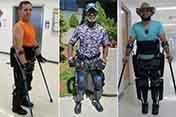 Photos: James J. Peters VAMC; Joseph Bailey
(09/12/2019)
The New York Post profiled five people with spinal cord injury who took part in the New Balance 5th Avenue Mile on Sept. 8 thanks to their bionic exoskeletons. The robotic devices allow people with SCI to stand and walk. The article quoted researcher Dr. Ann Spungen at the James J. Peters VA Medical Center in the Bronx, who has been instrumental in testing these devices for Veterans and documenting the benefits they provide in terms of mental and physical health and quality of life. "We are very proud of them and their dedicated efforts to reach the goal of walking a mile in less than 60 minutes," said Spungen. "While that may not sound like much, it is an impressive feat for someone with paralysis."
News source: New York Post, Sept. 7, 2019
|
How Should Scientists' Access To Health Databanks Be Managed?
 Photo by Frank Curran
(09/09/2019)
"More than a million Americans have donated genetic information and medical data for research projects. But how that information gets used varies a lot, depending on the philosophy of the organizations that have gathered the data. ...Three major projects in the U.S. illustrate these differing philosophies. The first project [VA's Million Veteran Program] involves three-quarters of a million veterans. ... Every day, 400 to 500 blood samples show up in a modern lab in the basement of the VA hospital in Boston. Luis Selva, the center's associate director, explains that robots extract DNA from the samples and then the genetic material is sent out for analysis. The blood samples themselves end up in gigantic, automated freezers for future use.... Even at this early stage of the process, the volunteers' names have been replaced with bar codes. Scientists can still link the DNA findings to the veterans' medical records, but the entire operation is designed to ensure that no personal information can be deduced from the findings. Only VA scientists and their collaborators are granted access to the vets' medical records and genetic information. Dr. J. Michael Gaziano, a VA scientist and MVP principal investigator, says that so far there are 30 projects involving this huge data set..."
News source: National Public Radio, Sept. 6, 2019
|
Being an Optimist May Help People Live Past 85
 Photo: iStock/LightFieldStudios
(08/28/2019)
A study by VA, Harvard, and Boston University researchers found that people who had scored higher on optimism assessments earlier in life were more likely to live past age 85. The study, published in the Proceedings of the National Academy of Sciences, followed women enrolled in the Nurses' Health Study and men enrolled in the Veterans Affairs Normative Aging Study, since the mid-1970s and early 1960s, respectively.
News source: Scientific American/STAT, Aug. 27, 2019
|
After Mandate from Congress, VA Opens Research Center for Burn Pit-Related Illnesses
 Photo by Senior Airman Julianne Showalter, USAF
(08/26/2019)
VA is increasing its focus on health conditions linked to burn pits and other airborne pollution in combat zones, establishing a "center of excellence" to better understand the extent of related illnesses and treatments for affected veterans. The new Airborne Hazards and Burn Pits Center of Excellence was stood up in May at the VA's War-Related Illness and Injury Study Center, or WRIISC, in East Orange, New Jersey. The office will specialize in clinical and translational research, as well as forging partnerships with researchers, physicians and others currently working to support veterans with burn pit-related diseases.
News source: Military Times, Aug. 23, 2019
|
Middle Age Now a High-Risk Time for Bad Falls
 Photo: ©iStock/Lokibaho
(08/08/2019)
New research shows serious falls are a significant risk among middle-aged adults, mainly because of multiple prescription medications, along with alcohol and illegal drug use. In the study, published in the Journal of Acquired Immune Deficiency Syndrome, the researchers analyzed data on VA patients who were part of the Veterans Aging Cohort Study. The team identified 13,000 fall cases and compared them to patients of similar age, race, sex and HIV status, who did not suffer falls. The use of multiple medications was a significant factor in falls among patients with and without HIV. The researchers examined HIV status because people being treated for HIV take several medications, often at a younger age. Medications associated with serious falls included those commonly used to treat anxiety and insomnia (benzodiazepines, like Xanax), as well as muscle relaxants and prescription opioids (such as OxyContin). The findings suggest that programs designed to prevent serious falls in older adults may need to be modified to address risks for middle-aged adults, says lead author Dr. Julie Womack, an associate professor at Yale and health sciences researcher at the VA Connecticut Healthcare System. "Fall risk factors are highly prevalent in the baby boomer generation more generally. The next step is to look at interventions for the middle-aged.
News source: U.S. News & World Report, July 30, 2019
|
Alphabet’s AI might be able to predict kidney disease
 Illustration: ©iStock/PhonlamaiPhoto
(08/01/2019)
This is remarkable work,” said Scripps Research professor Dr. Eric Topol of newly published collaborative research between VA and DeepMind, an artificial intelligence lab that is part of Google. “You could potentially mitigate the need for dialysis or kidney transplant, or prevent a patient’s death.” VA and DeepMind researchers developed software that was able to predict acute kidney injury in patients up to 48 hours before it occurred. The machine learning software was trained using medical records from more than 700,000 VA patients, and could anticipate 90 percent of cases where the damage was severe enough that a patient required dialysis. The study appeared in the journal Nature.
News source: Wired, July 31, 2019
|
People in the United States are misusing antibiotics, study says
 Photo: ©iStock/cioncabogdana
(07/26/2019)
Doctors prescribe antibiotics to treat bacterial and fungal infections, but some people in the United States are using antibiotics without a doctor's prescription. That's a public health problem that can increase drug resistance and make it harder to treat infections, according to a study published this week in the medical journal Annals of Internal Medicine. The study involved authors from the Center for Innovations in Quality, Effectiveness and Safety at the Houston VA Medical Center, and Baylor College of Medicine, Boston University, and the University of Pennsylvania.
News source: CNN Health, July 25, 2019
|
New research shows benefits of getting 1-year supply of birth control pills at once
 Photo: ©iStock/Rattankun Thongbun
(07/10/2019)
Dispensing a yearlong supply of birth control pills upfront may be key to both preventing unwanted pregnancy as well as lowering health care costs, according to a new study from researchers at the University of Pittsburgh and the U.S. Department of Veterans Affairs (VA) published in JAMA Internal Medicine. "Our motivation is really to improve women's reproductive health, outcome and autonomy," said Dr. Sonya Borrero, an author of the study and director of Pitt's Center for Women's Health Research and Innovation as well as associate director of the VA's Center for Health Equity Research and Promotion. "We are suggesting a policy that can do those things and won't cost the VA money."
News source: ABC News, July 9, 2019
|
University of Iowa doctor shows off high-tech vision test
(06/25/2019)
Dr. Michael Wall of the University of Iowa and the VA Center for the Prevention and Treatment of Visual Loss in Iowa City displayed a new portable vision test at VA Research Day on the Hill in Washington, DC, on June 20. The test uses a "smart device" and a virtual reality headset as a portable, inexpensive means to test for glaucoma. The researchers hope to make the system widely available to Veterans in their homes as well as in VA waiting rooms and outreach clinics. The KMTV report features VA Chief Research and Development Officer Dr. Rachel B. Ramoni trying on the headset and commenting on the value of VA Research Day on the Hill.
News source: KMVT, June 24, 2019
|
Heartburn Drugs Can Lead to Fatal Heart or Kidney Disease
 Photo for illustrative purposes only. ©iStock/Image Source
(06/13/2019)
The heartburn drugs called proton pump inhibitors, or P.P.I.s, are known to have serious side effects. Now researchers have documented the ways in which they may be deadly. The report, in BMJ Open, used a VA database of 157,625 new users of P.P.I.s like Prevacid and Prilosec, and 56,842 people prescribed a different type of acid-suppressing medicine called H2 blockers (Pepcid and Zantac, for example). Over 10 years of follow-up, the researchers, from VA, St. Louis University, and Washington University, found there were 45 excess deaths for every 1,000 users of P.P.I.s, with most of the deaths a result of cardiovascular disease or chronic kidney disease. Notably, half of the people on P.P.I.s had none of the common indications for taking them, such as peptic ulcer or GERD.
News source: New York Times, June 11, 2019
|
For female vets, sex assault in military boosts odds of lasting sexual pain
 Photo by Sgt. Richard Blumenstein/USMC
(06/12/2019)
Military women who are sexually assaulted may be at an especially high risk of developing lasting sexual pain, suggests a study by VA researchers. The team interviewed more than 1,000 female veterans and found the risk of sexual pain was higher among those assaulted while serving in the military than those who experienced sexual abuse as children, according to the study published in Obstetrics & Gynecology. The risk was highest among those who had experienced sexual abuse as children and who were assaulted while serving in the military.
News source: Reuters, June 11, 2019
|
Race disparity in U.S. prostate cancer deaths disappears with equal care
 Photo for illustrative purposes only. ©iStock/GlobalStock
(06/05/2019)
Black men are more likely to die of prostate cancer than white men in the U.S., but a new study suggests this racial disparity may be largely due to differences in the medical care men receive. In a national sample of more than 296,000 patients, racial differences were apparent—except among men who had the same access to care and standardized treatment because they were clinical trial participants or VA patients. In those two groups, black men had the same survival odds as white men.
News source: Reuters Health, May 30, 2019
|
Minneapolis VA Is Testing a Local Invention to Ease PTSD Nightmares
 Photo for illustrative purposes only. ©iStock/Vicheslav
(05/30/2019)
The brainchild of a recent Minnesota college graduate to help his father overcome combat-related nightmares has turned into a promising -- but still experimental -- medical app that is being tested by the Minneapolis VA Medical Center. Called NightWare, the app is loaded onto an Apple watch, where it learns to track the pulse rates and biometric readings of wearers when they have nightmares. Once trained, the app instructs the watch to buzz lightly, rousing sleepers from their nightmares without fully waking them. This month the Minneapolis VA reported that 31 veterans had tried the device, and 85% reported improved sleep within one month. Now VA researchers are starting a trial that will compare veterans who receive buzzes from the watch when they are having nightmares with veterans whose watches simply silently track their pulse and sleep data.
News source: Military.com, May 29, 2019
|
New treatment lowers bad cholesterol in heart attack patients, study says
 Illustration: ©iStock/wildpixel
(05/29/2019)
A new treatment might be able to remove "bad cholesterol" from the blood in a matter of hours, a recent VA-funded study says. Within two to three hours, a procedure known as LDL apheresis drove down the LDL cholesterol levels of heart attack patients by 50 to 80 percent, according to a study presented at the Society for Cardiovascular Angiography and Interventions 2019 Scientific Sessions in Las Vegas. "The concept was to bring the bad cholesterol down much more quickly and efficiently immediately after a heart attack," said Dr. Subhash Banerjee, chief of cardiology at the VA North Texas Health Care System and lead author on the study.
News source: Breitbart, May 23, 2019
|
What if a blood test could reveal PTSD in a patient -- and the best treatment?
 Photo by Frank Curran
(05/24/2019)
Dr. Kate Chard, a psychologist and researcher at the Cincinnati VA Medical Center, is leading a study aimed at finding biomarkers for PTSD. The study, funded by the Department of Defense, will analyze blood and saliva samples from more than 700 Veterans and active duty troops.
News source: WCPO—ABC-9, Cincinnati, Ohio
|
Artificial intelligence diagnoses lung cancer
 Photo: ©iStock/semnic
(05/20/2019)
A study that included a VA researcher suggests that artificial intelligence can outperform radiologists at diagnosing lung cancer. The researchers trained computer software with more than 42,000 CT lung scans from nearly 15,000 patients, telling the software which of the patients went on to get cancer. The study appeared in the journal Nature Medicine. It included Dr. Joshua Reicher from the Palo Alto VA and Stanford University, along with a team from Google and other universities.
News source: BBC News, May 20, 2019
|
Is there a best time of day to see your doctor?
 Photo for illustrative purposes only. ©iStock/dragana991
(05/13/2019)
Dr. Mitesh S. Patel, M.D., with the University of Pennsylvania and the Cpl. Michael J. Crescenz Veterans Affairs Medical Center in Philadelphia, writes about his group’s recent study showing that primary care patients seen earlier in the day were more likely to have their doctors order recommended cancer screening tests. The study reviewed the records of more than 19,000 patients. The researchers speculate the effect could stem from “decision fatigue” on the part of doctors. The group found similar results concerning flu shots in a past study.
News source: STAT, May 10, 2019
|
Stark Racial, Financial Divides Found in Opioid Addiction Treatment
 Photo: ©iStock/DNY59
(05/08/2019)
For every appointment where a person of color received a prescription for the addiction-treatment medication called buprenorphine, white patients had thirty-five such appointments. That’s according to data from 2012 to 2015 analyzed by researchers from the University of Michigan and VA Ann Arbor Healthcare System.
News source: University of Michigan Health Lab blog, May 8, 2019
|
Penn study finds genetic differences between heavy drinkers and alcoholics
 Photo: ©iStock/coldsnowstorm
(04/11/2019)
An analysis based on genetic and health data from nearly 275,000 Veteran participants in VA’s Million Veteran Program found genetic distinctions between heavy drinkers and alcoholics. The study appeared in the journal Nature Communications.
News source: Pittsburgh Post-Gazette, April 7, 2019
|
Vets Who Get Opioids From VA, Medicare at Higher Overdose Risk
 Photo: ©iStock/Charles Wollertz
(03/20/2019)
Many military veterans can get prescription opioid painkillers from both the VA and Medicare, putting them at nearly triple the risk for an overdose, new research warns. ""Only in some limited circumstances—and we don't know how many—is this purposeful behavior by a patient to try and get additional opioids," explained study author Dr. Walid Gellad, with the VA Pittsburgh Healthcare System. The study appeared online March 12 in the Annals of Internal Medicine.
News source: U.S. News and World Report, March 11, 2019
|
Blood Test Can Help Diagnose PTSD
 Photo by Frank Curran
(03/18/2019)
A team led by Dr. Alexander Niculescu tracked more than 250 Veterans in over 600 visits at the Indianapolis VA Medical Center to identify molecules in the blood that can help track stress intensity. The researchers were able to narrow the focus to 285 individual biomarkers, related to 269 genes, that they say may help to objectively diagnose PTSD, as well as determine severity and predict future hospitalizations. The study appeared in the journal Molecular Psychiatry.
News source: PsychCentral, March 13, 2019
|
Cyclist Kelly Catlin’s family donates her brain for concussion research
 Photo from usacycling.org
(03/14/2019)
The family of Kelly Catlin, the Olympic cyclist who died by suicide last week at 23, has donated her brain to the Veterans Affairs-Boston University-Concussion Legacy Foundation Brain Bank, seeking answers for a series of behavioral changes that they believe contributed to her death.
News source: Washington Post, March 13, 2019
|
Genetics Are Partly To Blame For Your Food Cravings
 Photo: ©iStock/fberti
(03/07/2019)
Genetics may predispose someone to crave sugar or salt, but lifestyle changes help manage cravings and reinforce healthy eating habits, says Dr. Nanette Steinle, a physician-researcher at the VA Maryland Healthcare System. She and other experts are quoted in this feature on the role of genes in taste preferences and food choices.
News source: Huffington Post, Feb. 25, 2019
|
Listening To Older Patients Who Want To Stop Dialysis
 Photo: ©iStock/zlikovec
(03/01/2019)
Older adults with advanced kidney disease who want to forgo dialysis often encounter resistance from physicians, according to a study in JAMA Internal Medicine by a team at the VA Puget Sound Health Care System. The researchers documented doctors’ reactions by reviewing medical charts of 851 older patients with chronic kidney disease who refused dialysis. In their notes, physicians frequently speculated the patients were incompetent, depressed, suicidal or irrational. The findings, say the researchers, “call for stronger efforts to develop more patient-centered models of care for patients with advanced CKD with the capacity to proactively support those who do not wish to pursue dialysis.”
News source: Kaiser Health News, Feb. 28, 2019
|
More men with low-risk prostate cancer are forgoing treatment, study finds
(02/19/2019)
“More men with low-risk prostate cancer are forgoing treatment to instead watch and wait to see whether their cancer progresses—and experts say that's a good thing,” according to a CNN article. Among other research, the piece cited a VA study published last year in the Journal of the American Medical Association that found that the use of a conservative approach for managing prostate cancer rose sharply in VA between 2005 and 2015. Dr. Stacy Loeb, a urologist and researcher with VA and New York University, told CNN, “It's very encouraging that the proportion of men who are receiving conservative management for low-risk prostate cancer has increased so much over time. ... However, it appears there's still a long way to go."
News source: CNN, Feb. 11, 2019
|
Study Offers Hint of Hope for Staving Off Dementia in Some People
 Photo: ©iStock/eggeggjiew
(01/29/2019)
A large study funded by the National Institutes of Health and involving several VA researchers found that people with hypertension who received intensive treatment to lower their blood pressure were less likely than those receiving standard blood pressure treatment to develop minor memory and thinking problems that often progress to dementia. The analysis, published in the Journal of the American Medical Association, was part of a larger study called the Systolic Blood Pressure Intervention Trial, or SPRINT.
News source: The New York Times, Jan. 28, 2019
|
Lowering Medicare Drug Prices
 Photo: ©iStock/MJ_Prototype
(01/18/2019)
The U.S. could save billions of dollars a year if Medicare were empowered to negotiate drug prices directly with pharmaceutical companies, according to a study in JAMA Internal Medicine. A team including VA researchers compared the prices of the top 50 oral drugs in Medicare Part D to the prices for the same drugs in VA, which negotiates its own prices and uses a national formulary. They found that Medicare’s spending was much higher than it would have been with VA pricing.
News source: The Fiscal Times
|
In screening for suicide risk, Facebook takes on tricky public health role
 Photo for illustrative purposes only. ©iStock/gawrav
(01/14/2019)
New York Times writer Natasha Singer examines Facebook’s forays into the use of algorithms and artificial intelligence to detect posts indicating that users are contemplating suicide, and cites VA’s groundbreaking work in this area. She mentions preliminary VA studies suggesting that the agency’s REACH VET program is effective. The program uses predictive modeling and medical record data to identify Vets at risk, and triggers outreach. Read more about research on REACH VET here.
News source: New York Times, Dec. 31, 2018
|
Daily Aspirin Use May Do More Harm Than Good for Healthy People
(12/17/2018)
Among otherwise healthy people, a daily dose of aspirin does not save lives and causes additional bleeding, found a new analysis led by Dr. Anthony Bavry, a cardiologist at the Malcom Randall Veterans Affairs Medical Center in Gainesville, Florida. His team reviewed data from 11 past clinical trials involving more than 157,000 healthy adults. Current U.S. guidelines favor daily aspirin for certain patients who don't have a history of heart disease but may be at elevated risk for a heart attack or stroke. The new study concludes that "routine use of aspirin" to ward off cardiovascular disease in those with no history of it "needs to be reconsidered."
News source: Diagnostic and Interventional Cardiology, Dec. 17, 2018
|
Racial disparities seen in U.S. heart rhythm treatment
 Photo for illustrative purposes only. ©iStock/bowdenimages
(12/03/2018)
Reuters, the New York Times, and other media outlets reported on a study by Dr. Utibe Essien and colleagues that found that African Americans with atrial fibrillation—a common type of irregular heartbeat—are less likely than white patients to get direct-acting anticoagulants, which are newer drugs that help prevent stroke. Thestudy, published in JAMA Cardiology, was based on an analysis of the records of more than 12,000 U.S. patients. Essien is an investigator at VA's Center for Health Equity Research and Promotion.
News source: Reuters, Nov. 29, 2018
|
Doctor Not Available for Diabetes Care? Nurse Practitioners Do Just as Well
 Photo for illustrative purposes only. ©iStock/FatCamera
(11/29/2018)
Several media outlets covered a VA study that looked at whether Veterans with diabetes fared any better if they had doctors leading their care versus nurse practitioners or physician assistant. The researchers, based at the Durham VA in North Carolina, found no significant differences. The study included data on more than 368,000 primary care patients at 568 VA facilities.
News source: U.S. News and World Report, Nov. 26, 2018
|
Brain-Computer Interface Lets Users With Quadriplegia Control Tablets With Their Minds
 Photo: Courtesy of BrainGate
(11/26/2018)
Forbes reported on a new study from the BrainGate collaboration that, for the first time, enabled people with paralysis to use their thoughts to control an unmodified commercial tablet computer. As the brain-computer interface decoded their brainwaves, the three study participants, all with tetraplegia, were able to control a Bluetooth mouse and perform tasks like web browsing, email, texting, and even playing music on a keyboard app. BrainGate involves researchers from VA's Center for Neurorestoration and Neurotechnology in Providence, Rhode Island, along with partners at Brown, Harvard, Stanford, and Emory universities and other institutions.
News source: Forbes, Nov. 24, 2018
|
Meditation Helps Vets With Post-Traumatic Stress Disorder
 Photo for illustrative purposes only. ©iStock/SensorSpo
(11/19/2018)
U.S. News and World Report and other media outlets reported on a study on transcendental meditation for PTSD that involved more than 200 Veterans at the VA San Diego Healthcare System. The authors, led by Dr. Thomas Rutledge, a VA psychologist, found that meditation worked at least as well as prolonged exposure therapy, one of the evidence-based psychotherapies VA uses to treat PTSD. The Department of Defense funded the study.
News source: U.S. News and World Report, Nov. 15, 2018
|
Here's Why You Shouldn't Take a Sleeping Pill Every Night
 ©iStock/OcusFocus
(10/09/2018)
This Time Health news feature covers recent research on the pros and cons of prescription and over-the-counter medications to combat insomnia. The article cites two VA-led studies, both focused on older adults: one out of Ann Arbor, Michigan; the other out of Buffalo, New York.
News source: Time, Oct. 9, 2018
|
Does What Your Doctor Wears Matter?
 Photo: ©iStock/monkeybusinessimages
(09/21/2018)
U.S. News & World Report highlighted a study led by a team at the VA Ann Arbor Healthcare System, based on questionnaire responses from more than 4,000 patients at 10 academic medical centers who were asked about their preferences in the area of physician attire. The study concluded that “patients have important expectations and perceptions for physician dress that vary by context and region. Nuanced policies addressing physician dress code to improve patient satisfaction appear important.”
News source: U.S. News & World Report, Sept. 19, 2018
|
Combat Veterans Coming Home with CTE
(09/17/2018)
"60 Minutes" highlights the stories of Veterans affected by chronic traumatic encephalopathy, or CTE, as a result of exposure to IED blasts, and explains how VA-Boston University brain researcher Dr. Ann McKee has pioneered understanding of how the disease develops—both in combat Veterans and contact athletes, such as football players. The piece also reports on a clinical trial led by Dr. Sam Gandy of Mt. Sinai Hospital and the James J. Peters VA Medical Center in the Bronx, New York, exploring whether CTE can reliably be diagnosed in living patients—and not just on the basis of port-mortem brain-tissue studies. Gandy also has lab work funded by VA to explore possible drug and exercise treatments to regenerate brain cells and reverse the effects of CTE.
News source: CBS News, Sept. 16, 2018
|
VA Opens New Research Center Focused on Veteran Caregivers
 Photo: va.gov
(09/14/2018)
A new VA research hub will focus on veteran caregiver challenges and services. The Elizabeth Dole Center of Excellence will operate under the VA Health Services Research and Development program. The virtual center is named in honor of former Sen. Elizabeth Dole, whose foundation focuses on caregiver issues, support and research. The research center will work with VA investigators and universities to develop agency policy for how veteran caregivers are supported and best practices for in-home and community-based care. While VA does currently offer services to caregivers, including a program which provides a monthly stipend to those who qualify, it does not have a research center dedicated to the subject.
News source: Military.com
|
VA Working to Slash Opioid Use Amid New Research on Painkiller Alternatives
 Photo: ©iStock/VladimirSorokin
(09/07/2018)
The VA's efforts to cut prescription rates for opioids have been backed up by encouraging new research showing success for the use of non-opioid alternatives in the treatment of some types of chronic pain. "Many people do have expectations that opioids are just amazingly effective for pain. You know, it turns out that's probably not true," said Dr. Erin Krebs, a general internist and researcher at the Minneapolis VA Center for Chronic Disease Outcomes Research. "We found in this trial no evidence that opioids were doing a better job for chronic pain than the non-opioid medications we already have on hand," said Krebs, who also is an associate professor of medicine at the University of Minnesota.
News source: Military.com
|
Rory Cooper is Driven to Solve Problems for Disabled People
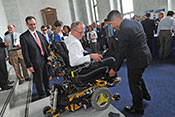 VA photo by Gene Russell
(08/21/2018)
As a young man, facing life after suffering a spinal cord injury in a bicycling accident in 1980, Rory Cooper wanted three things — to become an engineer, to be able to support a family, and to make a difference in the world. But he didn't think he could obtain any of them in the type of wheelchair that was available at the time. In pursuit of those goals, Cooper—with VA and the University of Pittsburgh—has played an outsized role in helping disabled people achieve autonomy.
News source: American Association for the Advancement of Science
|
Historic Dixie brewery on Tulane Avenue reopening as new VA research facility
 Photo for illustrative purposes only. ©iStock/SeventyFour
(08/15/2018)
A historic brewery in New Orleans is reopening as a new, state-of-the-art VA research facility. Joseph Constans, associate chief of staff for research for the VA system in southeast Louisiana, described the facility as the "crown jewel" of the VA hospital campus, designed to support biomedical, clinical, and health-care-delivery research. Work in the new space will cover topics ranging from improving PTSD treatment to developing a non-addictive opioid-like painkiller.
News source: The Times-Picayune
|
A Simple Emergency Room Intervention Can Help Cut Suicide Risk
 Photo: ©iStock/MJFelt
(07/24/2018)
A study conducted at five VA emergency departments and involving nearly 1,200 suicidal patients showed that a simple intervention conducted by staff in the ER could significantly reduce the risk of future suicide attempts. The study appeared in JAMA Psychiatry.
News source: NPR
|
Alzheimer’s could one day be treated with common drug, study in mice suggests
 Photo by Jerry Daliege
(07/05/2018)
Scientists with VA and Rush University Medical Center in Chicago showed that aspirin decreases amyloid plaques—a hallmark of Alzheimer’s pathology in the brain—in mice by stimulating lysosomes. These are structures within animal cells that help clear cellular debris. The study, funded by VA, the Alzheimer’s Association, and NIH, appeared in The Journal of Neuroscience.
News source: Newsweek
|
5 Ways to Ease Heartburn Pain Without Taking Pills
 Photo: ©iStock/Image Source
(06/28/2018)
A report on how to treat heartburn without medication cites a recent study by a group with VA and Washington University that looked at data on some 3.5 million VA patients. The study found a higher risk of death associated with the heartburn drugs known as proton pump inhibitors, and urged limiting their use.
News source: Healthline
|
San Diego VA Studies the Role of Guilt in PTSD Treatment
 Photo for illustrative purposes only. By Staff Sgt. William Tremblay/USA
(06/15/2018)
VA researchers in San Diego and at other sites, in collaboration with the Department of Defense and Brown University, are studying whether "trauma-informed guilt reduction therapy" can help Iraq and Afghanistan Veterans who are struggling with feelings of guilt related to events that occurred on their deployment. The study is enrolling close to 200 Veterans.
News source: KPBS, San Diego
|
Why We Won't Miss Opioids
 Photo: ©iStock/DNY59
(06/05/2018)
Writer Claudia Wills profiles VA researcher Dr. Erin Krebs, of the Minneapolis VA Health Care System, and discusses Krebs' innovative clinical trial that compared opioids to non-opioid drugs for pain management.
News source: Scientific American
|
More men with low-risk prostate cancer are forgoing aggressive treatment
 Photo: ©iStock/jamesbenet
(05/24/2018)
A study by researchers with VA and New York University, based on data on the health records of more than 125,000 Veterans, found a sharp upward swing in the numbers of men with low-risk prostate cancer who are rejecting immediate surgery and radiation in favor of surveillance. “The VA is the tip of the spear,” commented Otis Brawley, chief medical officer of the American Cancer Society, on what he sees as a very positive trend. Jonathan Simons, president and chief executive of the Prostate Cancer Foundation, which helped fund the study, said that when it comes to the “No. 1 cancer of veterans, prostate cancer, the outcomes are better in VA hospitals than in the rest of American medicine.”
News source: Washington Post
|
In veterans, even a mild case of traumatic brain injury is linked to an increased risk of dementia
 Photo: Staff Sgt. William Tremblay/USA
(05/15/2018)
Researchers who examined the medical records of more than 350,000 Americans who served during the wars in Iraq and Afghanistan found that men and women who experienced at least one mild TBI were more than twice as likely as their uninjured peers to develop dementia after they retired from the military. The study, by a team with VA and the University of California, San Francisco, appeared in JAMA Neurology.
News source: Los Angeles Times
|
Even a mild head injury increases risk for Parkinson's disease, veterans study shows
 Photo: ©iStock/bekisha
(04/19/2018)
Even a mild head injury, commonly called a concussion, makes veterans more likely to get Parkinson's disease later on in life, a new study shows. This is the same type of injury suffered by many Americans on the sports field or in a motor vehicle crash each year. A group of 165,000 veterans with a history of traumatic brain injury (TBI) were found to have a higher risk of Parkinson's disease, compared to other veterans of the same age.
News source: ABC News
|
The VA Targets Cancer
(04/09/2018)
VA is leveraging its huge patient population and many partnerships to study some of the most important questions in cancer care, while increasing Veteran access to clinical trials and cutting-edge cancer treatments.
News source: Defense Media Network
|
Study Confirms Lifesaving Value of Colonoscopy
 Photo illustration by Michael Escalante
(03/14/2018)
A large VA study appears to have confirmed what many public health experts have long believed: Colonoscopy saves lives. The study looked at some 25,000 patients in the VA system, where colonoscopy is widely used. Those who died were significantly less likely to have had a colonoscopy. A comparison of screening histories over about two decades found that "colonoscopy was associated with a 61 percent reduction in colorectal cancer mortality," said study author Dr. Charles Kahi, with the Roudebush VA Medical Center in Indianapolis.
News source: HealthDay
|
Prescription opioids fail rigorous new test for chronic pain
 Photo: ©iStock/Hailshadow
(03/07/2018)
In one of the most rigorous clinical trials of opioid painkillers to date, VA researchers found that the drugs did no better than non-opioid medications at bringing relief and boosting function for Veterans with chronic pain. The study appeared in the Journal of the American Medical Association. Dr. David Reuben of UCLA told the Associated Press, "This is a very important study [that] will likely change the approach to managing long-term back, hip and knee pain."
News source: KQED
|
Wartime Bomb Blasts May Lead to Memory Problems
 Photo by Spc. Teddy Wade/USA
(02/27/2018)
A VA study involving 333 Veterans of Iraq and Afghanistan found verbal memory deficits in those who had been exposed to blasts at close range—within 10 meters. The research team, from the Translational Research Center for TBI and Stress Disorders (TRACTS) and Geriatric Research, Education and Clinical Center (GRECC) at the Boston VA, say the results suggest that “proximity to blast should be considered when assessing for memory deficits in returning Veterans.”
News source: Philadelphia Inquirer
|
Long-Term Opioid Use Down Among U.S. Vets: Study
 Photo: ©iStock/Backyard Production
(02/15/2018)
Opioid prescriptions in the Veterans Health Administration have declined since peaking in 2012, a new VA study found. Key to the drop were decreases in long-term prescriptions, which carry greater risk for overdose and addiction. The study, published in the Journal of General Internal Medicine, was led by a team at VA’s Center for Comprehensive Access and Delivery Research and Evaluation (CADRE) in Iowa City.
News source: Philadelphia Inquirer
|
Yoga can lower depression and minimize emotional eating, several studies find
 Photo for illustrative purposes only. ©iStock/zdenkam
(02/08/2018)
Yoga, long associated with a range of health benefits, has been shown in recent studies to help lower depression levels and minimize emotional eating. Among the studies cited in a Feb. 7 MSN article was one presented at the American Psychological Association in August 2017. Twenty-three male Veterans at the San Francisco VA Health Care System took part in yoga classes twice per week for eight weeks. Those with higher depression scores at the outset showed significant reductions in symptoms after the program.
News source: MSN
|
Studies at Palo Alto VA investigate the exercise-brain connection
 Photo for illustrative purposes only. ©iStock/gradyreese
(02/05/2018)
In a clinical trial, researchers at the VA Palo Alto Health Care System and 13 other sites are exploring the impact that exercise has on brain health—particularly the prevention of dementia. The study will enroll 300 older adults in all.
News source: Palo Alto online
|
Salem VA leads national research: Tooth brushing each day keeps pneumonia at bay
 Photo: ©iStock/Wavebreakmedia
(01/11/2018)
A nurse researcher at the Salem VA in Virginia has spearhead a project showing that if the biofilm that forms on teeth is removed twice a day—namely, through brushing—harmful bacteria will not migrate into patients' lungs and cause pneumonia.
News source: The Roanoke Times
|
Leaving The Military Wasn’t My Idea: How Separation Status May Affect Homelessness in Women Veterans
 Photo for illustrative purposes only. ©iStock/DanielBendjy
(01/03/2018)
The connection between women's experiences in the military—including the circumstances under which they separate from service—and eventual homelessness is explored in an essay by journalist Lily Casura. She cites the work of VA researchers.
News source: Huffington Post
|
A Place to Play, on Wheels or Feet
(12/12/2017)
The New York Times highlighted the work of VA’s Dr. Rory Cooper and his team at the Human Engineering Research Laboratories. The group’s PneuChair, an innovative air-powered wheelchair, is being used at Morgan’s Inspiration Island, a water park designed specifically for people with disabilities.
News source: New York Times
|
Study: Integrating Legal Aid With Medical Care Improves Veterans’ Lives
 Photo: ©istock/seb_ra
(12/06/2017)
Veterans’ mental health and housing improved when they accessed free legal services in a VA facility, according to a study of Veterans in Connecticut and New York City. The study, published in the journal Health Affairs, was led by Dr. Jack Tsai, with Yale and the VA New England Mental Illness, Research, Education and Clinical Center. Check out our recent podcast with Tsai addressing his work aimed at improving services for homeless Veterans.
News source: Hartford Courant
|
Do Patient-Centered Medical Homes Boost Chronic Care Management?
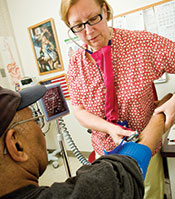 Photo by Tommy Leonardi
(11/28/2017)
Researchers with VA and several universities showed that a VA initiative to implement patient-centered medical homes in its primary care clinics nationwide resulted in better management of patients' chronic diseases, such as high blood pressure and diabetes. The model is known in VA has patient-aligned care teams, or PACT.
News source: Patient Engagement HIT
|
For opiate addiction, study finds drug-assisted treatment is more effective than detox
 Photo: ©iStock/Moussa81
(11/21/2017)
VA researchers were part of a team from the U.S. and Canada that compared two ways of treating opiate addiction. The study, published in the Annals of Internal Medicine, focused on Californians. It found that using drugs to treat opiate addiction—such as methadone or buprenorphine—is more cost-effective than medically supervised detox programs.
News source: The Los Angeles Times
|
A Lesson From the Biggest Losers: Exercise Keeps Off the Weight
 Photo: iStock
(11/01/2017)
Dr. Jennifer Kerns, an obesity specialist at the Washington DC VA Medical Center, was the first author on a study in the journal Obesity that explored the factors that help people keep off pounds they have lost. The study was based on the experiences of contestants in the TV show "The Biggest Loser," in which Kerns herself had participated.
News source: The New York Times
|
VA Examines Link Between Blast Exposure And Lung Injuries
 Photo: Staff Sgt. William Tremblay/USA
(10/26/2017)
A VA study that appeared in the Annals of Internal Medicine in September 2017 found that blast exposures may have a “discernable effect on [cardiopulmonary] symptoms and exercise capacity even years after the exposure.” The work, led by VA’s War Related Illness and Injury Study Center in New Jersey, was based on data from VA’s Airborne Hazards and Open Burn Pit Registry.
News source: National Public Radio
|
Breathing Polluted Air May Increase The Risk For Kidney Problems
 Photo: ©iStock/Konoplytska
(10/04/2017)
Breathing dirty air may increase the risk for kidney problems, suggests a study by researchers at the VA St. Louis Health Care System and Washington University. The team used county-by-county pollution reports from the EPA, backed up by NASA satellite data, and determined that exposure to particulate matter—tiny fragments produced by fossil fuel combustion and other industrial processes that can be inhaled deep into the lungs—was associated with greater odds of kidney disease, as documented in Veterans' medical records.
News source: HuffPost/Reuters
|
New Biomarker May Allow for CTE Diagnosis During Life
 Photo: ©iStock/flisk
(10/02/2017)
A new biomarker for chronic traumatic encephalopathy, or CTE, has been discovered by researchers at the Boston VA and Boston University School of Medicine that may allow the disease to be diagnosed during life for the first time, instead of after death through a brain biopsy. The findings, reported in the journal PLoS One, might also help distinguish CTE from Alzheimer's disease, which often presents with symptoms similar to CTE and also can be diagnosed only post-mortem. The ability to diagnose CTE in living individuals will allow for more research into prevention and treatment of the disease, which has been the subject of media attention in recent years mainly because of its link to football players and other contact athletes.
News source: NBC-TV Boston
|
Sleep deprivation: A tool against depression?
 Photo: ©iStock/cyano66
(09/25/2017)
Yahoo News covered a study out of the Corporal Michael J. Crescenz VA Medical Center in Philadelphia and the University of Pennsylvania that analyzed past research on the positive effects of sleep deprivation on depression. Surprisingly, sleep deprivation quickly reduces symptoms of depression in about half of people who suffer from the disorder, according to a meta-analysis of 66 independent studies that was published in the Journal of Clinical Psychiatry. However, there are practical concerns and limitations when it comes to applying this approach clinically—for one, the benefits tend to be short-lived and fade once normal sleep resumes. The researchers suggest further studies aimed at harnessing the benefits of sleep deprivation in practical ways.
|
Fire ants may hold key to psoriasis treatment
 Photo: ©iStock/19695866
(09/14/2017)
Genetic Engineering and Biotechnology News covered a study led by a researcher with VA and Emory University that points to a potential treatment for psoriasis—a potentially debilitating condition that affects up to 6 million U.S. patients—in the venom of fire ants. The researchers successfully tested compounds in mice that they developed from solenopsin, the toxic chemical in fire ant venom. The study appeared in Scientific Reports.
|
Electronic health records withstand hurricane challenges
 Photo: ©istock/bauhaus1000
(09/11/2017)
VA researcher Dr. Hardeep Singh of the Center for Innovations in Quality, Effectiveness and Safety at the Michael E. DeBakey VA Medical Center in Houston was quoted in a Politico article titled "Health IT passes first big test with Hurricane Harvey." Singh is an expert in the use of electronic patient records in health care. The article cited VA's success in retaining and rapidly accessing patient records in the face of Hurricane Katrina in 2005, and explained how VA and other systems were able to do the same in the face of Hurricane Harvey.
|
Stellate ganglion block being studied as PTSD treatment
 Photo: ©iStock/Cosmin4000
(09/08/2017)
Stars and Stripes carried an article from the Sacramento Bee exploring whether an existing medical treatment known as stellate ganglion block may help ease PTSD. The procedure, which involves injecting a local anesthetic into nerve tissue in the neck, is used for certain pain conditions. It reportedly can also stop nerve impulses to the brain that trigger anxiety in trauma victims, but studies on this application have yielded mixed results so far. A VA evidence review earlier this year urged further study. More research is ongoing at the VA Long Beach Healthcare System.
|
Marijuana doesn’t hurt young kidneys
 Photo: ©iStock/digihelion
(08/30/2017)
VA researchers and colleagues determined that long-term marijuana use does not appear to harm kidney function in young adults. The analysis, published in the Clinical Journal of the American Society of Nephrology, used data from the Coronary Artery Risk Development in Young Adults (CARDIA) study. The findings were covered by WebMD and other media outlets.
|
Benefits of hot yoga
 Photo: ©iStock/microgen
(08/21/2017)
The website True Viral News highlighted a study from the San Francisco VA Medical Center in an Aug. 19, 2017 article titled "What is hot yoga and is it right for you?" The study, published in 2016, found that "heated hatha yoga" helped improve stress levels and unhealthy eating patterns among women at risk for obesity and related illnesses.
|
Study: No racial gap in survival after VA artery procedures
 Photo: ©iStock/mironos
(07/21/2017)
Reuters Health and other news outlets covered a VA study, published in JAMA Cardiology, that found no independent association between race and one-year survival rates in more than 42,000 Veterans who had undergone procedures to clear blocked arteries at VA hospitals. Studies on non-VA populations have found higher mortality among blacks after various heart procedures. The authors of the VA study say it is the "largest modern analysis to date of the influence of race on cardiovascular outcomes among US veterans."
|
Large depression study yields 'guidance that doctors need'
 Photo for illustrative purposes only. ©iStock/asiseeit
(07/12/2017)
The New Haven Register and other papers covered a large clinical trial on depression that was funded and conducted by the VA Cooperative Studies Program and published in the Journal of the American Medical Association. The "VAST-D" trial involved more than 1,500 Veterans at 35 VA sites who didn't respond to initial therapy and were randomized to one of three follow-up treatments. The results suggest adding an antipsychotic may work better for many patients than switching to a new antidepressant. Dr. John Krystal, chairman of psychiatry at Yale, said the study "provides the type of detailed guidance that doctors need."
|
LUKE advanced prosthetic arm prescribed for first time in VA
(07/10/2017)
The New York Times, CBS News,and other media outlets covered an event held just before Independence Day weekend at the VA New York Harbor Health Care System in which two Veterans became the first to be prescribed an advanced upper-limb prosthetis known as the LUKE arm (previously called the DEKA arm). VA researchers contributed to the development of the device, which allows for near-natural arm and hand motion.
|
Heartburn drugs linked to excess risk of death
 Photo: ©iStock/GlobalStock
(07/05/2017)
CNN and other media outlets worldwide covered a study by VA and Washington University researchers that suggests there may be an "excess risk of death" among users of proton pump inhibitors—drugs such as Nexium and Prevacid, taken by millions of Americans for ulcers, heartburn, or acid reflux. The long-term observational study of more than 6 million users of VA health care only points to a correlation, and does not implicate PPIs as a direct cause of excess deaths, but the authors urge more caution in the prescribing of these medications.
|
The importance of connection in Alzheimer's care
 Photo: © iStock/fzant
(06/05/2017)
An article at myCentralJersey.com featured Dr. Hillel Grossman, a psychiatrist and researcher with the Bronx VA and Icahn School of Medicine at Mount Sinai, talking about the critical role that connection with family, friends, and community plays for people with Alzheimer's disease.
|
Comparing exercise regimens
 Photo by Laura Segall
(05/22/2017)
Reuters covered a study by a VA-Baylor College of Medicine team that involved 160 older people who were shedding pounds through dieting. The study, published in the New England Journal of Medicine, found a combination of aerobic exercise and weight training was better at boosting physical functioning than either form of exercise alone.
|
VA partners with Energy on big data initiative
 Photo: ©iStock/Maxiphoto
(05/17/2017)
Healthcare IT News and other news outlets covered an announcement by VA of a new partnership with the Department of Energy that will leverage DOE's high-capacity computing to make the most of data from VA's Million Veteran Program and other sources. The goal is make inroads in suicide prevention, prostate cancer, and other areas of concern for Veterans.
|
How do genes influence PTSD?
 ©iStock/ktsimage
(05/02/2017)
CTV News in Canada and other media outlets reported on a large international study, involving several VA researchers, that examined genetic risk factors for PTSD. The study included some 200 billion pieces of genetic information from more than 20,000 adults across the globe. The researchers say their results "demonstrate genetic influences on the development of PTSD, identify shared genetic risk between PTSD and other psychiatric disorders, and highlight the importance of multiethnic/racial samples." They say yet larger samples are needed to home in on specific genes.
|
Study: Spinal manipulation offers modest relief for back pain
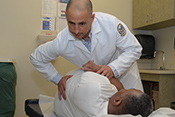 Photo: Jeffery D. Russell
(04/19/2017)
A study led by a team at the West Los Angeles VA Medical Center found that spinal manipulative therapy for low back pain—offered by chiropractors, physical therapists, and others—was associated with "modest improvements in pain and function and with transient minor musculoskeletal harms." The researchers reviewed and combined data from past studies on the topic. The new study was covered by NPR and several other media outlets.
|
Insights on the Million Veteran Program
 Photo by Frank Curran
(04/10/2017)
GenomeWeb interviewed VA's Dr. Sumitra Muralidhar, program director for the Million Veteran Program, about the latest developments in the landmark genomics effort, which now has well over 550,000 Veterans enrolled and will eventually be open to active duty members as well, through a collaboration with the Department of Defense's Millennium Cohort Study. Volunteers provide blood samples and information about their health and their military experiences.
|
Restoring movement to paralyzed limbs
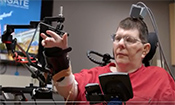 Photo from CWRU video
(03/31/2017)
NPR and other media outlets covered research involving VA, Case Western Reserve University, Brown University and other partners that enabled a paralyzed man to use his own thoughts to control his own arm and hand. The patient, a Navy Veteran, had electrodes implants in his brain and the muscles of his paralyzed limb. The study appeared in the British journal The Lancet.
|
VA audiology researcher featured
 Photo by Michael Moody
(03/28/2017)
A story on new treatments for hearing loss in the April 3, 2017, issue of The New Yorker shares some of the personal background of VA audiology researcher (and one-time rock musician!) Dr. James Henry, of VA's National Center for Rehabilitative Auditory Research.
|
Substance use disorders and suicide risk
 ©iStock/LeszekCzerwonka
(03/20/2017)
U.S. News and World Report and other media outlets covered a VA study on the link between substance use disorders and suicide deaths among Veterans using VA care. The study, which looked at data on more than 4.8 million Veterans, found a sharply elevated risk of suicide among those with a current SUD.
|
Cleveland partnership to tackle antibiotic resistance
 ©iStock/selvanegra
(03/13/2017)
The Cleveland VA Medical Center and its clinical affiliate, Case Western Reserve University, have created a new center, Case VA Cares (CWRU-Cleveland VAMC Center for Antimicrobial Resistance and Epidemiology), to study antibiotic resistance, which the World Health Organization calls "one of the biggest threats to global health, food security and development today." The effort is headed by longtime VA researcher and CWRU professor Dr. Robert Bonomo. Read more in Crain's Cleveland Business.
|
Helping patients be more active in their own care
 Photo: ©iStock/PeopleImages
(03/01/2017)
A Wall Street Journal article on shared decision-making in health care highlighted the research of Dr. Angie Fagerlin at the Salt Lake City VA Medical Center. Fagerlin is also president of the Society for Medical Decision Making.
|
Keeping off those extra pounds
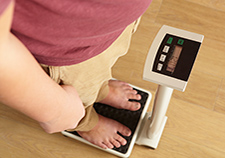 Photo: ©iStock/Cathy Yeulet
(02/24/2017)
CNN and other national media outlets reported on a VA study, published in the Annals of Internal Medicine, that tested various strategies to help people keep off the weight they had lost.
|
New ways to fight C. diff
 Photo by Jerry Daliege
(02/16/2017)
VA researcher Dr. Dale Gerding, an internationally recognized expert on infectious disease, was featured in a New York Times article on efforts to subdue Clostridium difficile, which infects hundreds of thousands of U.S. patients a year and has been called an "urgent threat" by the Centers for Disease Control and Prevention. Among other studies, Gerding's team in Hines, Illinois, has tested an orally administered liquid that has a C. diff strain that does not produce toxins or cause illness, and that pushes out the toxic strains from the gut.
|
Probing probiotics as potential PTSD, TBI treatment
 Photo: ©iStock/TLFurrer
(02/01/2017)
Military Times covered work underway at the VA Rocky Mountain Mental Illness Research and Education Clinical Center to learn whether restoring friendly bacteria in the gut might counter symptoms of PTSD and traumatic brain injury.
|
How aggressively should blood pressure be treated?
 Photo: ©iStock/AleksandarNakic
(01/18/2017)
CNN covered a study by a Portland (Oregon) VA team that looked at the benefits and harms of intensive blood pressure treatment in older adults. The researchers analyzed data from 24 past studies.
|
Frailty screening boosts surgery outcomes
 Photo: ©iStock/JohnnyGreig
(01/06/2017)
The Pittsburgh Post-Gazette covered a study by a VA Pittsburgh team that found that screening older patients for frailty before their surgeries significantly increased post-surgery survival rates. The study was published in JAMA Surgery.
|
Study tracks melanoma rates
 Photo: ©iStock/paultarasenko
(12/29/2016)
The Associated Press reported on a VA study in JAMA Dermatology that tracked trends in melanoma—the most serious skin cancer—region by region in the U.S. between 2003 and 2013. New England was the only region to show an overall drop in both death and incidence rates. The authors believe strong public-awareness programs in the area may have driven the trend.
|
VA researcher cited in NYT piece on weed killer
 Photo: ©iStock/Iovro77
(12/22/2016)
Dr. Samuel Goldman, a researcher with the Parkinson's Disease Research, Education and Clinical Center at the San Francisco VA Health Care System, was quoted in a Dec. 21, 2016, New York Times article on possible links between Parkinson's disease and the herbicide paraquat, which is used widely in the United States. Goldman said there is "overwhelming data" tying the weed killer to the disease.
|
PTSD exposure therapy via videoconference
 Photo: ©iStock/mihailomilovanovic
(12/14/2016)
Fox News and other media outlets ran a Reuters piece on a VA study involving 132 Veterans with PTSD. The study was led by a team at the Ralph H. Johnson VA Medical Center in Charleston, South Carolina. It found that prolonged exposure therapy—one of the two main evidence-based psychotherapies VA recommends for PTSD—could be delivered just as effectively by videoconferencing as in person. This could enable Veterans to benefit from the treatment at home without having to travel to a VA site.
|
New sensor to gauge blood's clotting ability
(12/08/2016)
A portable sensor developed by researchers with VA's APT Center and Case Western Reserve University in Cleveland can assess the clotting ability of a person's blood 95 times faster than current methods, using only a single drop of blood. The ClotChip measures how blood affects an electric field—a reflection of clotting ability. Emergency medical teams could potentially use it to quickly tell whether someone is on blood thinner medication.
|
Study finds drop in dementia rates
(11/22/2016)
The New York Times and other media outlets covered a study by VA authors and colleagues that showed a drop in dementia rates in the U.S. between 2000 and 2012. The researchers aren't sure of the reason, but they cite several possible factors, including better education—which could boost brain health in many ways over a lifetime—and better management of chronic diseases such as high blood pressure.
|
Residual effects of problem drinking
(11/10/2016)
CBS News covered a study by VA researchers in Palo Alto and Richmond that involved more than 600 Vietnam-era Veterans. It found that problem drinking during five years or more in young adulthood appears to increase the risk of health problems later in life, even after decades of remission. The study was published in the Journal of Studies on Alcohol and Drugs.
|
Restoring touch to amputees
(11/04/2016)
Researchers with VA and Case Western Reserve University in Cleveland have been learning how to restore a sense of natural touch to Veterans and others who use artificial hands. Watch this CWRU video to learn more.
|
PBS' Military Medicine special features VA-Pitt lab
(10/31/2016)
"Military Medicine: Beyond the Battlefield," to air on PBS Nov. 9, has a segment on work at the Human Engineering Research Laboratories, a joint endeavor of VA and the University of Pittsburgh. One HERL project, the Mobility Enhancement Robotic Wheelchair, was covered in VA Research Currents earlier this year.
|
VA's APT Center shines in first Cyborg Olympics
(10/14/2016)
Paralyzed by a spinal cord injury and powered by contractions of his own muscles activated by surgically implanted neural stimulators developed by VA and Case Western Reserve University researchers, Mark Muhn pedaled his way to a gold medal at the first ever Cyborg Olympics, in Sweden. Read more on the website of VA's Advanced Platform Technology Center.
|
Teasing out the links between TBI and PTSD
(09/28/2016)
The work of VA-UCSD researcher Dr. Mingxiong Huang, seen above with colleague Dr. Roland Lee, was highlighted in a recent National Public Radio piece titled "War Studies Suggest a Concussion Leaves the Brain Vulnerable to PTSD." The story also featured VA-UCSD researcher Dr. Dewleen Baker.
|
Study finds 'notable gains' in VA surgery outcomes
(09/22/2016)
Reuters reported on a VA-Baylor College of Medicine study that found significant improvements between 1999 and 2014 in surgical outcomes for VA patients. The gains are attributed to the VA Surgical Quality Improvement Program, which has served as a model for private systems.
|
Long-lasting benefits from weight-loss surgery
(09/07/2016)
CBS News and other media outlets covered a study by VA and Duke University researchers that found that VA patients who had bariatric surgery lost more weight than similar patients who did not have surgery, and they tended to keep off most of the weight after 10 years.
|
Federal partnership to boost cancer therapy
(08/30/2016)
The website HealthITAnalytics.com covered a new partnership among VA, the Department of Defense, and the National Cancer Institute that will allow for routine screening of certain tumors for gene and protein information in order to provide targeted, individualized therapies. The program, called APOLLO, is part of the larger national Cancer Moonshot Initiative.
|
VA infection-control program highlighted in National Geographic
(08/23/2016)
National Geographic covered a study that showed broad gains from a VA program started in 2007 to fight methicillin-resistant Staphylococcus aureus (MRSA), a dangerous hospital-acquired infection. The study showed that the initiative reduced the rates of other infections, too, because it led to wide-reaching improvements in infection control.
|
Exploring art therapy for PTSD
(07/27/2016)
The American Art Therapy Association and Family Practice News wrote about a small clinical trial at the Hampton (Va.) VA Medical Center, reportedly the first within VA to examine the benefits of art therapy for patients with PTSD.
|
Study confirms benefits of Mediterranean diet
(07/20/2016)
Researchers at the Minneapolis VA Health Care System reviewed and analyzed existing data on the popular Mediterranean diet, which is rich in healthy fats, and confirmed its heart benefits. Forbes and many other news outlets covered the study.
|
IBM-VA partnership for cancer care
(06/29/2016)
IBM's supercomputer Watson will help VA doctors tailor cancer care. The new partnership was announced at VP Joe Biden's Cancer Moonshot summit on June 29, 2016. Read about it on CNBC, CNET, and The Washington Post.
|
Health IT
(06/15/2016)
The work of VA's Dr. Hardeep Singh and his team at IQuESt (Center for Innovations in Quality, Effectiveness, and Safety) is heavily cited in two recent federal reports on information technology within health care, including one titled
"Goals and Priorities for Health Care Organizations to Improve Safety Using Health IT."
|
A greater role for pharmacists?
(05/09/2016)
VA's Dr. Timothy Wilt and colleagues reviewed 63 published studies to learn whether pharmacists could play a greater role in managing chronic diseases such as high blood pressure. Read more from UPI.
|
Heartburn drugs linked to kidney disease
(05/05/2016)
Fox News and other media outlets covered a VA study of more than 193,000 patients that found an association between the use of proton pump inhibitors—drugs such as Nexium and Prevacid, taken by millions of Americans for ulcers, heartburn, or acid reflux—and serious kidney problems.
|
Military sexual trauma tied to homelessness
(04/26/2016)
Researchers with VA and the University of Utah found that rates of homelessness were more than doubled among Iraq and Afghanistan Veterans who had screened positive for military sexual trauma. Read more in Military Times.
|
Moving closer to personalized treatment for chronic pain
(04/20/2016)
Read in Yale News how a Yale-VA team treated two patients affected by inherited erythromelalgia—a rare pain syndrome—with a drug based on the patients' genetic mutations. The researchers say the study shows "it is possible to use genomics and molecular modeling to guide pain treatment."
|
Gene therapy for heart failure
(04/05/2016)
A team led by VA researchers in San Diego successfully used gene transfer to boost cardiac function in patients with heart failure. The study, published in JAMA Cardiology, was covered by HealthDay and other news outlets.
|
Psychological effects of TBI
(03/11/2016)
Read an informative, engaging MinnPost interview about traumatic brain injury and its psychological effects with Dr. Kelvin Lim, of VA, the University of Minnesota, and the Defense and Veterans Brain Injury Center.
|
MVP expanding to include active-duty service members
(02/26/2016)
As part of a new partnership between VA and the Department of Defense, announced Feb. 25, 2016, at the Precision Medicine Initiative Summit at the White House, active-duty service members will now be authorized to donate blood and enroll in VA's Million Veteran Program. Read more at military.com.
|
Childhood abuse among military members
(01/28/2016)
VA researcher Dr. John Blosnich was quoted in a Jan. 27, 2016, Reuters article about a new Canadian study that found high rates of childhood abuse among military members. Blosnich's team published similar findings in 2014, based on a survey of U.S. adults. He coauthored an editorial about the new Canadian results with VA's Dr. Robert Bossarte.
|
Study yields insight on TBI damage
(01/15/2016)
A study at the Puget Sound VA and University of Washington shows that the cerebellum—a brain area important for motor control—is particularly vulnerable to repeated blast injuries. The team compared findings in mice with scans of TBI-affected Veterans. Read more in the Seattle Times.
|
Higher illness rates among transgender Veterans
(01/13/2016)
A study that compared the VA health records of more than 5,000 transgender Veterans and some 15,000 non-transgender patients found significantly higher rates of physical and mental health conditions in the transgender group. Read more in the Huffington Post.
|
Pedaling a recumbent trike—with paralyzed legs
(12/28/2015)
New technology from VA's Advanced Platform Technology Center and Case Western Reserve University is enabling people with paraplegia from spinal cord injuries to pedal recumbent trikes. The system uses an implanted stimulator and electrodes in the legs and hips, and tiny electrical currents. Read more and watch a video in the January 2016 issue of IEEE Spectrum.
|
Robotic exoskeleton, studied in VA, will be made available to Vets
(12/17/2015)
Israeli technology that allows those with paraplegia (paralysis of the legs) to stand, walk, and climb stairs will now be made available to Veterans who can benefit from it. More than a dozen patients at the Bronx VA had helped test the ReWalk, which involves special shoes, leg braces, a watch-like control pad, and a backpack to carry the battery.
|
MVP on STAT
(11/16/2015)
VA's Million Veteran Program was featured on the science-news website STAT: Reporting from the frontiers of health and medicine in a Veterans Day report.
|
Systolic Blood Pressure Intervention Trial (SPRINT)
(11/12/2015)
Results from the NIH-sponsored Systolic Blood Pressure Intervention Trial (SPRINT), led by Memphis VA investigator Dr. William Cushman, were published in the New England Journal of Medicine on Nov. 9 and covered in many news articles and commentaries, including a New York Times blog post by Yale cardiologist Dr. Harlan Krumholz.
|
New insight on how germs spread in hospitals
(10/29/2015)
Reuters, Fox News, and other news outlets covered a study led by a Cleveland VA team that found that hospital workers often transfer germs when removing their gowns or gloves.
|
PTSD among Vietnam-era Women Veterans
(10/14/2015)
The Stars and Stripes and other media outlets covered a VA study, published online Oct. 7, 2015, in JAMA Psychiatry, looking at the prevalence of PTSD in Vietnam-era women Veterans. The study was funded by VA's Cooperative Studies Program.
|
Smokers and lung cancer screening
(09/17/2015)
On Sept. 7, New York Times health columnist Jane Brody discussed a recent VA study on smokers' thoughts and feelings after undergoing low-dose CT scans to screen for lung cancer. Rather than motivate smokers to quit, screening may actually reinforce the habit, the study found.
|
Healthy-living advice for patients
(09/10/2015)
The summer 2015 edition of Veterans' Healthy Living, published by the VA New England Healthcare System, features an interview with VA and Harvard physician-researcher Dr. J. Michael Gaziano, recently featured in the New York Times, about his healthy-living advice for patients.
|
Military misconduct and homelessness
(08/31/2015)
A recent VA study, covered in the Los Angeles Times, Stars and Stripes, and other news outlets, found a link between military misconduct and subsequent homelessness. The finding could lead to new preventive strategies.
|
Sleep problems and suicide
(08/17/2015)
Read all about the connection in the August 2015 edition of CoE News from VA's Center of Excellence for Suicide Prevention.
|
Mindfulness for PTSD
(08/05/2015)
In the Aug. 4, 2015, issue of the Journal of the American Medical Association, VA researchers reported the results of a study on mindful-based stress reduction for treating PTSD. Read more about the study—and meet some of the Veterans who participated—in this news story and video.
|
|
(07/21/2015)
Check the July 2015 issue of Mental Health Innovations for updates on research and care from VA's specialized mental health centers.
|
Can the electronic medical record help prevent Veteran suicide?
(06/24/2015)
VA and NIH researchers developed a predictive model that can identify Veterans at high risk of suicide based on indicators in their electronic medical records. The study appeared in the American Journal of Public Health and was covered in USA Today and other media outlets.
|
Harvard expert comments on VA diabetes study
(06/12/2015)
Harvard Medical School diabetes expert Dr. David Nathan comments on the 10-year follow-up results from the VA Diabetes Study, published June 4, 2015, in the New England Journal of Medicine.
|
Partnering with VSOs
(06/01/2015)
In the latest issue of FORUM, a newsletter designed to help VA clinicians and managers translate research into quality health care for Veterans, Dr. Jeff Whittle talks about partnering with Veterans Service Organizations on research. Learn more about the research he describes in this video.
|
Focus on women Veterans
(03/19/2015)
A VA-sponsored supplement in the April 2015 issue of Medical Care contains 25 original articles about VA research on women Veterans' health. Among the areas covered are military service and deployment, mental health, reproductive health, access to care, and primary care.
|
Immune genes seen as possible PTSD biomarkers
(03/12/2015)
A team with VA and the University of California, San Diego, reports that genes linked to immune function appear to be involved in the development of PTSD. The study involved nearly 300 Marines. The findings, which appear in the journal Molecular Psychiatry, may "lead to interventions that delay or [stop] the development of PTSD," say the researchers. Read more from United Press International.
|
Future diabetes treatment?
(02/24/2015)
One day, people's own skin cells may be used as the basis for a therapy to treat their diabetes. That's the vision of VA and University of Iowa researcher Dr. Nick Zavazava and his team, who published a study recently in the journal PLOS One. Watch a CBC News report on the work.
|
Study links gambling, OCD
(02/13/2015)
A team with VA, Yale, and St. Louis University has uncovered genetic links between pathological gambling and obsessive-compulsive disorder. The insight could help in developing new treatments for problem gamblers. Read about it in Yale News.
|
Innovative wheelchair enables paralyzed Vets to stand
(02/09/2015)
Invented by a team at the Minneapolis VA, a new wheelchair model allows users to crank up the push rims to a standing position. One Veteran now using the prototype at home says it's his "first time cooking and standing in 32 years." Read a Minneapolis StarTribune article and watch a video on Facebook.
|
New hope for coma patients
(01/23/2015)
Watch this moving CBS News report about research at Northwestern University and the Hines (Ill.) VA Medical Center that shows how coma patients respond to loved ones' voices.
|
When aspirin is wrongly prescribed
(01/14/2015)
Time magazine and other media outlets covered a study by VA authors and colleagues on the misuse of aspirin. The study, in the Journal of the American College of Cardiology, found that more than 1 in 10 U.S. patients were inappropriately prescribed aspirin to prevent heart disease.
|
Focus on Gulf War Veterans
(01/08/2015)
In a news article in the Jan. 8, 2015, issue of the journal Nature, VA's Dr. Vic Kalasinsky joins other experts in discussing what VA is doing to address the ongoing health concerns of Gulf War Veterans.
|
Lowering health care costs
(12/16/2014)
In the current online edition of the Harvard Business Review, Dr. Eve Kerr, director of the Center for Clinical Management Research at the Ann Arbor VA Healthcare System, writes about the Choosing Wisely initiative and its potential impact on U.S. health care costs.
|
Conquering chronic pain
(12/10/2014)
The December 2014 issue of Scientific American features the research of Dr. Stephen Waxman, of Yale and the VA Connecticut Healthcare System, in an article titled "Pain that Won't Quit." The piece tells how studies by Waxman and others have helped lay the groundwork for new pain drugs now in development.
|
Focus on women Veterans' health
(11/24/2014)
In honor of Veterans Day 2014, the journal Women's Health Issues published a special collection of research on women Veterans' health. Topics include mental health, reproductive health, cardiovascular health, military sexual trauma, health care for women Veterans, and more.
|
Diabetes test strips and duplicate spending
(11/13/2014)
A VA study points to potential overspending by the government on blood sugar test strips for Veterans with diabetes who use both VA health care and Medicare. Read more at Reuters Health.
|
Restoring the sense of touch for prosthesis users
(10/14/2014)
A team at VA's Advanced Platform Technology Center and Case Western Reserve University has developed a way to restore touch perception for those who have lost an upper limb and use an artificial hand. Read more in the October 2014 issue of Science Translational Medicine.
|
VA, NIH fund new studies on nondrug pain therapies
(09/30/2014)
Read about it in the Washington Post.
|
Everyday stress and life expectancy—what's the link?
(09/22/2014)
Listen to this NPR report about new results
from the VA Normative Aging Study.
|
Psychological Services highlights VA and mental health care
(09/19/2014)
Psychological Services' August 2014 issue highlighted several studies on VA and military mental health care.
|
US Medicine features robotic stroke rehabilitation
(09/02/2014)
U.S. Medicine, the "Voice of Federal Medicine," recently featured VA research on robotic stroke rehab.
|
American Journal of Public Health features Veteran Health Topics
(08/21/2014)
From cancer to homelessness, a new special issue of the American Journal of Public Health covers a range of Veteran health topics.
|

 ©Getty Images/Vladimir Vladimirov
©Getty Images/Vladimir Vladimirov
 ©©Stock/drazen_zigic
©©Stock/drazen_zigic
 ©istock/SeanXu
©istock/SeanXu
 ©iStock/ RealPeopleGroup
©iStock/ RealPeopleGroup
 ©iStock/Kiwis
©iStock/Kiwis
 ©iStock/Dmytro Bosnak
©iStock/Dmytro Bosnak
 ©iStock/JannHuizenga
©iStock/JannHuizenga
 ©iStock/Murat Deniz
©iStock/Murat Deniz
 ©iStock/Rocky89
©iStock/Rocky89
 Photo by Joshua Burch
Photo by Joshua Burch
 ©iStock/Stevica Mrdja
©iStock/Stevica Mrdja
 Photo by: William Redding, U.S. Marine Corps
Photo by: William Redding, U.S. Marine Corps
 ©iStock/DragonImages
©iStock/DragonImages
 ©iStock/iaremenko
©iStock/iaremenko
 © iStock/Pheelings Media
© iStock/Pheelings Media
 ©iStock/g-stockstudio
©iStock/g-stockstudio
 © iStock/ManonAllard
© iStock/ManonAllard
 ©iStock/KittipongJirasukhanont
©iStock/KittipongJirasukhanont
 Photo by Christopher Menzie, VA San Diego
Photo by Christopher Menzie, VA San Diego
 ©iStock/KatarzynaBialasiewicz
©iStock/KatarzynaBialasiewicz
 ©iStock/Izusek
©iStock/Izusek
 © iStock/Artur Kamalov
© iStock/Artur Kamalov
 © iStocl/Gorodenkoff Productions OU
© iStocl/Gorodenkoff Productions OU
 ©iStock/Pattanaphong Khuankaew
©iStock/Pattanaphong Khuankaew
 ©iStock 1255592762
©iStock 1255592762
 © iStock/Rost-9D
© iStock/Rost-9D
 Photo: ©iStock/Pattanaphong Khuankaew
Photo: ©iStock/Pattanaphong Khuankaew
 Photo: ©iStockKameleon007
Photo: ©iStockKameleon007
 Photo: ©iStock/Fergusowen
Photo: ©iStock/Fergusowen

 Photo:© iStock/Artur Kamalov
Photo:© iStock/Artur Kamalov

 Jennifer Kerbo
Jennifer Kerbo
 Photo: ©iStock/da-kuk
Photo: ©iStock/da-kuk
 Photo: ©iStock/HRAUN
Photo: ©iStock/HRAUN

 Photo: ©iStock/rogerashford
Photo: ©iStock/rogerashford
 Photo: ©iStock/pixel_dreams
Photo: ©iStock/pixel_dreams

 Photo: ©iStock/scyther5
Photo: ©iStock/scyther5
 Photo: iStock/image_jungle
Photo: iStock/image_jungle
 Photo: ©iStock/busracavus
Photo: ©iStock/busracavus
 Photo: ©iStock/Wavebreakmedia
Photo: ©iStock/Wavebreakmedia
 Photo: iStock/adamkaz
Photo: iStock/adamkaz
 Dr. Hadiyah-Nicole Green. Photo: NNPA Newswire
Dr. Hadiyah-Nicole Green. Photo: NNPA Newswire
 Photo: ©iStock/Hotaik Sung
Photo: ©iStock/Hotaik Sung
 Photo by Sgt. Richard Blumenstein/USMC
Photo by Sgt. Richard Blumenstein/USMC
 Photo: ©iStock/gilaxia
Photo: ©iStock/gilaxia

 Photo: ©Paul Jasienski/Getty Images
Photo: ©Paul Jasienski/Getty Images
 Photo for illustrative purposes only. ©iStock/izusek
Photo for illustrative purposes only. ©iStock/izusek
 Photo courtesy of Ethan Ocasio
Photo courtesy of Ethan Ocasio
 Photo: ©iStock/KatarzynaBialasiewicz
Photo: ©iStock/KatarzynaBialasiewicz
 Photo for illustrative purposes only. ©iStock/Hispanolistic
Photo for illustrative purposes only. ©iStock/Hispanolistic
 Photo: ©iStock/adamkaz
Photo: ©iStock/adamkaz
 Photo: Staff Sgt. William Tremblay/USA
Photo: Staff Sgt. William Tremblay/USA
 Photo: ©iStock/Hotaik Sung
Photo: ©iStock/Hotaik Sung
 Photo for illustrative purposes only. ©iStock/Alex Potemkin
Photo for illustrative purposes only. ©iStock/Alex Potemkin
 Photos: James J. Peters VAMC; Joseph Bailey
Photos: James J. Peters VAMC; Joseph Bailey
 Photo by Frank Curran
Photo by Frank Curran
 Photo: iStock/LightFieldStudios
Photo: iStock/LightFieldStudios
 Photo by Senior Airman Julianne Showalter, USAF
Photo by Senior Airman Julianne Showalter, USAF
 Photo: ©iStock/Lokibaho
Photo: ©iStock/Lokibaho
 Illustration: ©iStock/PhonlamaiPhoto
Illustration: ©iStock/PhonlamaiPhoto
 Photo: ©iStock/cioncabogdana
Photo: ©iStock/cioncabogdana
 Photo: ©iStock/Rattankun Thongbun
Photo: ©iStock/Rattankun Thongbun
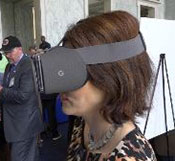
 Photo for illustrative purposes only. ©iStock/Image Source
Photo for illustrative purposes only. ©iStock/Image Source
 Photo by Sgt. Richard Blumenstein/USMC
Photo by Sgt. Richard Blumenstein/USMC
 Photo for illustrative purposes only. ©iStock/GlobalStock
Photo for illustrative purposes only. ©iStock/GlobalStock
 Photo for illustrative purposes only. ©iStock/Vicheslav
Photo for illustrative purposes only. ©iStock/Vicheslav
 Illustration: ©iStock/wildpixel
Illustration: ©iStock/wildpixel
 Photo by Frank Curran
Photo by Frank Curran
 Photo: ©iStock/semnic
Photo: ©iStock/semnic
 Photo for illustrative purposes only. ©iStock/dragana991
Photo for illustrative purposes only. ©iStock/dragana991
 Photo: ©iStock/DNY59
Photo: ©iStock/DNY59
 Photo: ©iStock/coldsnowstorm
Photo: ©iStock/coldsnowstorm
 Photo: ©iStock/Charles Wollertz
Photo: ©iStock/Charles Wollertz
 Photo by Frank Curran
Photo by Frank Curran
 Photo from usacycling.org
Photo from usacycling.org
 Photo: ©iStock/fberti
Photo: ©iStock/fberti
 Photo: ©iStock/zlikovec
Photo: ©iStock/zlikovec

 Photo: ©iStock/eggeggjiew
Photo: ©iStock/eggeggjiew
 Photo: ©iStock/MJ_Prototype
Photo: ©iStock/MJ_Prototype
 Photo for illustrative purposes only. ©iStock/gawrav
Photo for illustrative purposes only. ©iStock/gawrav

 Photo for illustrative purposes only. ©iStock/bowdenimages
Photo for illustrative purposes only. ©iStock/bowdenimages
 Photo for illustrative purposes only. ©iStock/FatCamera
Photo for illustrative purposes only. ©iStock/FatCamera
 Photo: Courtesy of BrainGate
Photo: Courtesy of BrainGate
 Photo for illustrative purposes only. ©iStock/SensorSpo
Photo for illustrative purposes only. ©iStock/SensorSpo
 ©iStock/OcusFocus
©iStock/OcusFocus
 Photo: ©iStock/monkeybusinessimages
Photo: ©iStock/monkeybusinessimages
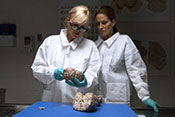
 Photo: va.gov
Photo: va.gov
 Photo: ©iStock/VladimirSorokin
Photo: ©iStock/VladimirSorokin
 VA photo by Gene Russell
VA photo by Gene Russell
 Photo for illustrative purposes only. ©iStock/SeventyFour
Photo for illustrative purposes only. ©iStock/SeventyFour
 Photo: ©iStock/MJFelt
Photo: ©iStock/MJFelt
 Photo by Jerry Daliege
Photo by Jerry Daliege
 Photo: ©iStock/Image Source
Photo: ©iStock/Image Source
 Photo for illustrative purposes only. By Staff Sgt. William Tremblay/USA
Photo for illustrative purposes only. By Staff Sgt. William Tremblay/USA
 Photo: ©iStock/DNY59
Photo: ©iStock/DNY59
 Photo: ©iStock/jamesbenet
Photo: ©iStock/jamesbenet
 Photo: Staff Sgt. William Tremblay/USA
Photo: Staff Sgt. William Tremblay/USA
 Photo: ©iStock/bekisha
Photo: ©iStock/bekisha

 Photo illustration by Michael Escalante
Photo illustration by Michael Escalante
 Photo: ©iStock/Hailshadow
Photo: ©iStock/Hailshadow
 Photo by Spc. Teddy Wade/USA
Photo by Spc. Teddy Wade/USA
 Photo: ©iStock/Backyard Production
Photo: ©iStock/Backyard Production
 Photo for illustrative purposes only. ©iStock/zdenkam
Photo for illustrative purposes only. ©iStock/zdenkam
 Photo for illustrative purposes only. ©iStock/gradyreese
Photo for illustrative purposes only. ©iStock/gradyreese
 Photo: ©iStock/Wavebreakmedia
Photo: ©iStock/Wavebreakmedia
 Photo for illustrative purposes only. ©iStock/DanielBendjy
Photo for illustrative purposes only. ©iStock/DanielBendjy
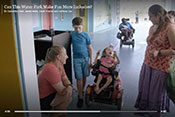
 Photo: ©istock/seb_ra
Photo: ©istock/seb_ra
 Photo by Tommy Leonardi
Photo by Tommy Leonardi
 Photo: ©iStock/Moussa81
Photo: ©iStock/Moussa81
 Photo: iStock
Photo: iStock
 Photo: Staff Sgt. William Tremblay/USA
Photo: Staff Sgt. William Tremblay/USA
 Photo: ©iStock/Konoplytska
Photo: ©iStock/Konoplytska
 Photo: ©iStock/flisk
Photo: ©iStock/flisk
 Photo: ©iStock/cyano66
Photo: ©iStock/cyano66
 Photo: ©iStock/19695866
Photo: ©iStock/19695866
 Photo: ©istock/bauhaus1000
Photo: ©istock/bauhaus1000
 Photo: ©iStock/Cosmin4000
Photo: ©iStock/Cosmin4000
 Photo: ©iStock/digihelion
Photo: ©iStock/digihelion
 Photo: ©iStock/microgen
Photo: ©iStock/microgen
 Photo: ©iStock/mironos
Photo: ©iStock/mironos
 Photo for illustrative purposes only. ©iStock/asiseeit
Photo for illustrative purposes only. ©iStock/asiseeit
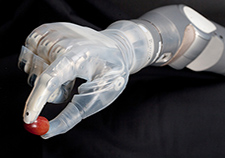
 Photo: ©iStock/GlobalStock
Photo: ©iStock/GlobalStock
 Photo: © iStock/fzant
Photo: © iStock/fzant
 Photo by Laura Segall
Photo by Laura Segall
 Photo: ©iStock/Maxiphoto
Photo: ©iStock/Maxiphoto
 ©iStock/ktsimage
©iStock/ktsimage
 Photo: Jeffery D. Russell
Photo: Jeffery D. Russell
 Photo by Frank Curran
Photo by Frank Curran
 Photo from CWRU video
Photo from CWRU video
 Photo by Michael Moody
Photo by Michael Moody
 ©iStock/LeszekCzerwonka
©iStock/LeszekCzerwonka
 ©iStock/selvanegra
©iStock/selvanegra
 Photo: ©iStock/PeopleImages
Photo: ©iStock/PeopleImages
 Photo: ©iStock/Cathy Yeulet
Photo: ©iStock/Cathy Yeulet
 Photo by Jerry Daliege
Photo by Jerry Daliege
 Photo: ©iStock/TLFurrer
Photo: ©iStock/TLFurrer
 Photo: ©iStock/AleksandarNakic
Photo: ©iStock/AleksandarNakic
 Photo: ©iStock/JohnnyGreig
Photo: ©iStock/JohnnyGreig
 Photo: ©iStock/paultarasenko
Photo: ©iStock/paultarasenko
 Photo: ©iStock/Iovro77
Photo: ©iStock/Iovro77
 Photo: ©iStock/mihailomilovanovic
Photo: ©iStock/mihailomilovanovic

